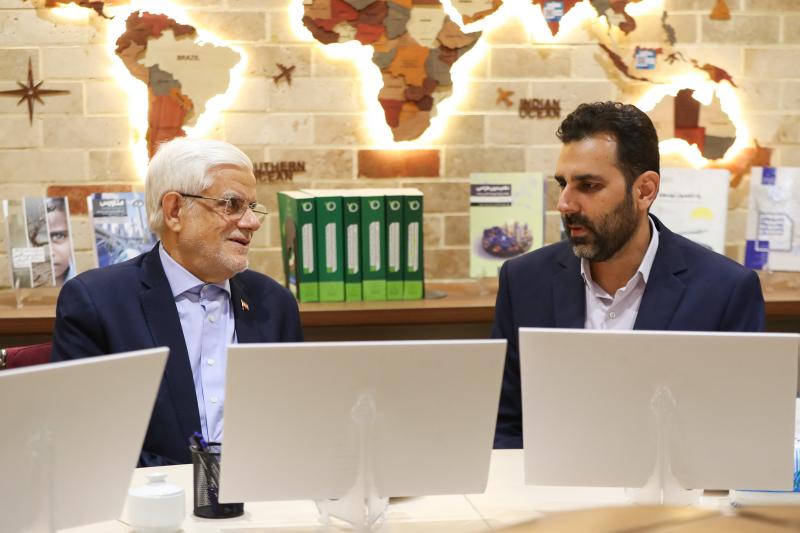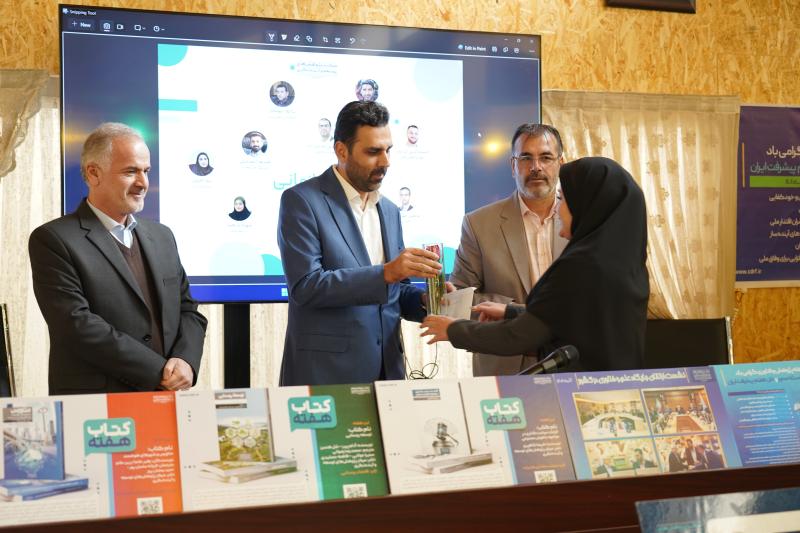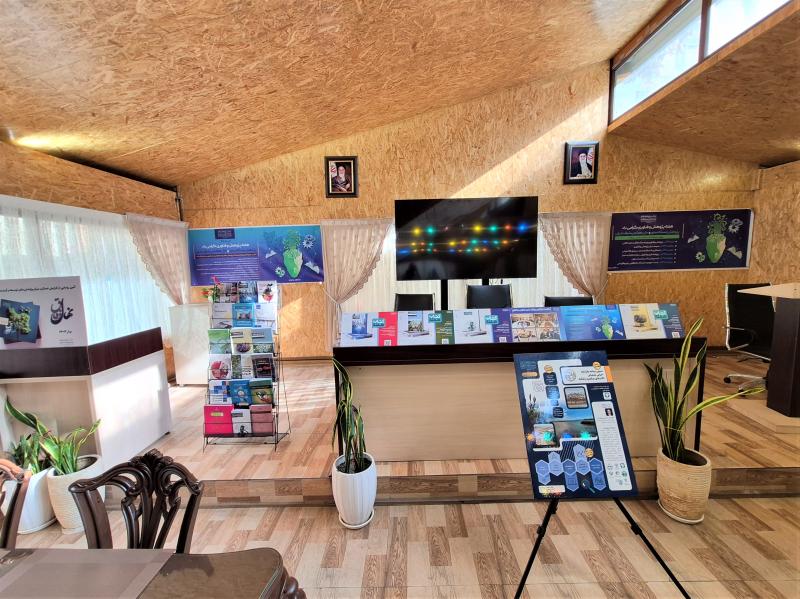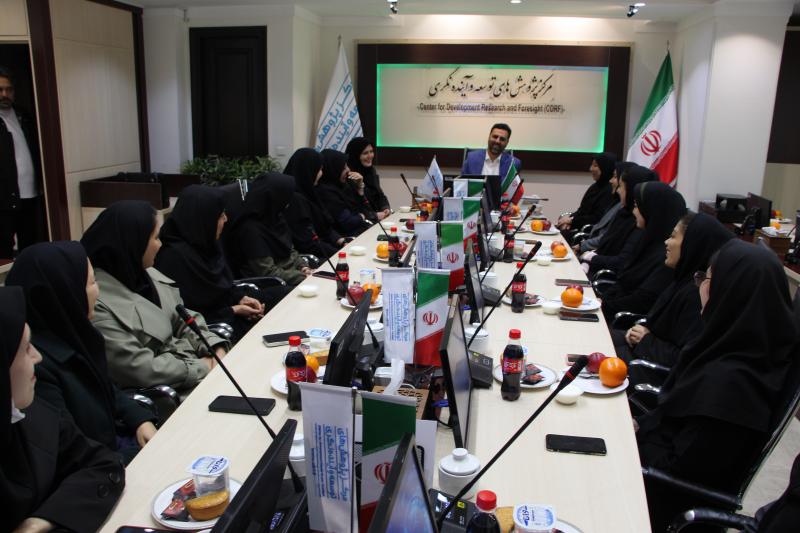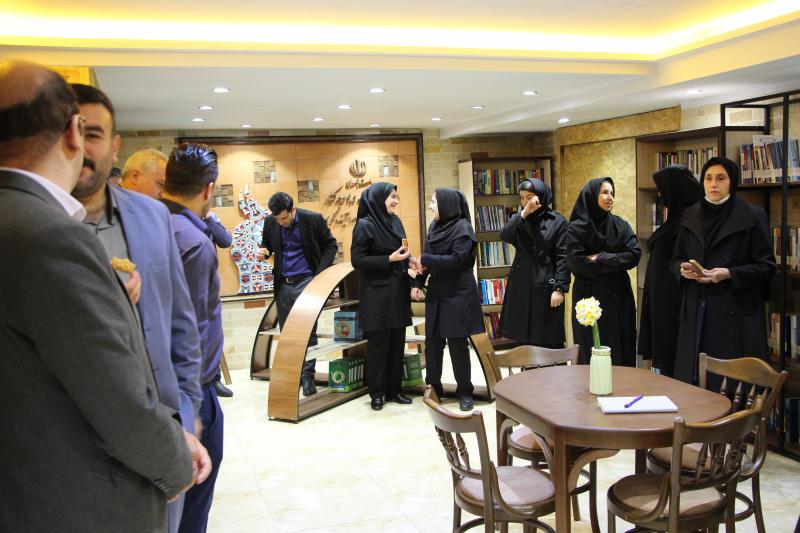
-
بررسی آییننامهها و دستورالعملهای برنامه هفتم پیشرفت
-
بررسی عوامل موثر بر افزایش تصادفات و تلفات جادهای و سوانح رانندگی و دادهکاوی تلفات انسانی
-
سازماندهی و بازآرایی فضایی آموزش عالی کشور
-
به روز رسانی سند ملی آمایش سرزمین
-
انجام مطالعات مناطق آزاد به عنوان نواحی پیشران اقتصادی کشور
-
اصلاح ساختار بودجه و پیاده سازی نظام یکپارچه مدیریت اطلاعات مالی دولت (IFMIS)
کلید واژه : Government
تعداد اخبار : 74
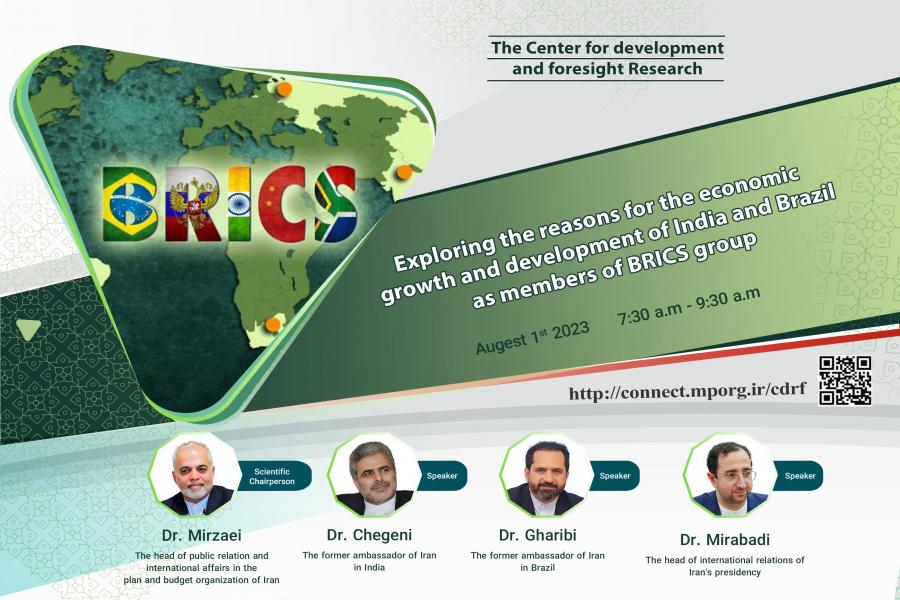
The private sector is the driving force of the BRICS countries’ economic development
The specialized conference of “Exploring the reasons for the success of the development plans of the BRICS countries; with a focus on Brazil and India” was held. It was stated that the private sector is considered as the driving force of economic development in Brazil and India. Also, it was mentioned that utilizing the economic development experience of Brazil and India would be a pivotal factor for the development of Iran’s economy.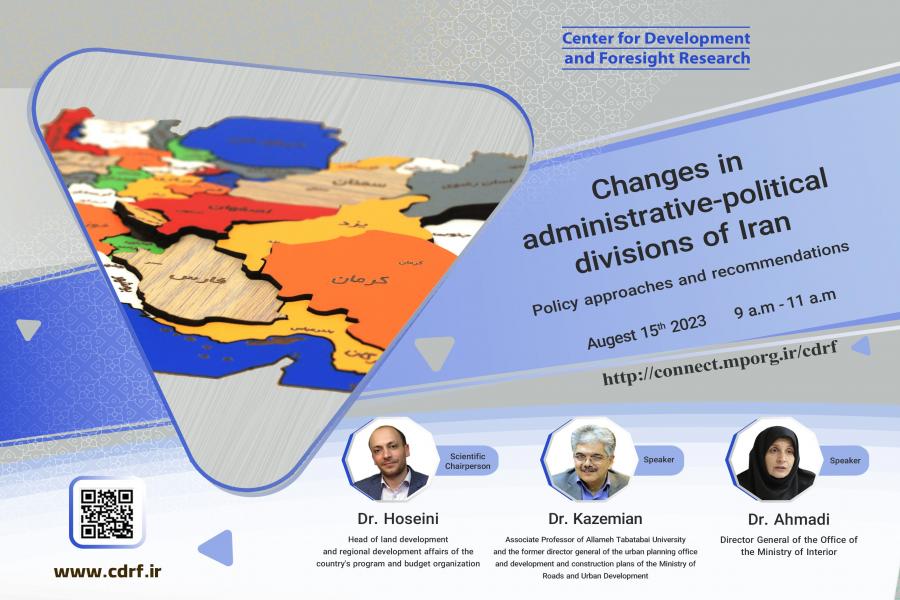
National Land Use Plan: The Key to Balanced Development and Budget Resource Allocation
The scientific-specialized conforence of "Transformations in the Administrative-Political Divisions of Iran: Approaches and Policy Recommendations" was held. 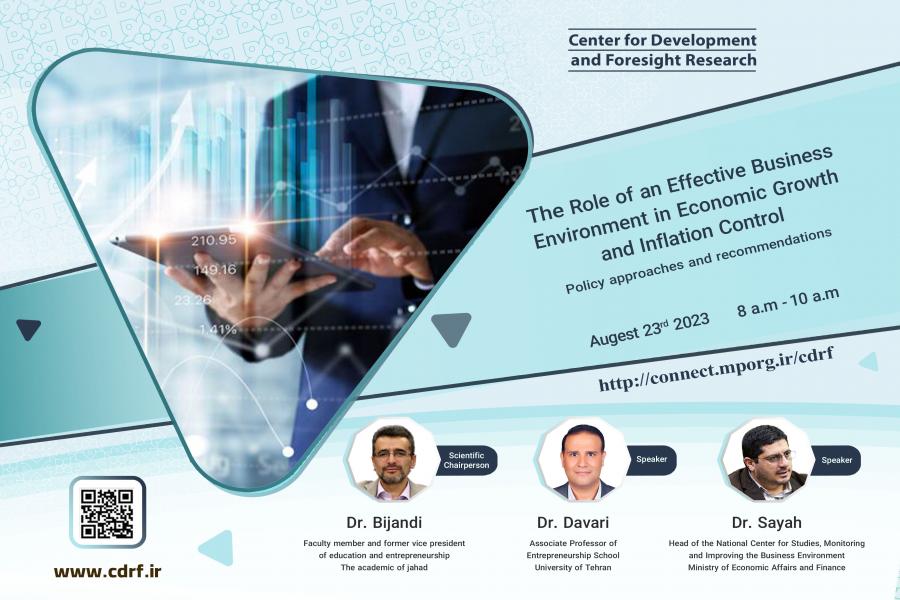
The Role of an Effective Business Environment in Economic Growth and Inflation Control: Approaches and Policy Recommendations
The specialized conference titled “The Role of an Effective Business Environment in Economic Growth and Inflation Control: Approaches and Policy Recommendations” was recently held. The conference was attended by several notable figures, including Dr. Mohammad Sadegh Bijandi, a former member of the academic board and deputy of education and entrepreneurship of the Academic Center for Education, Culture, and Research, who served as the scientific director. Other attendees included Dr. Ali Davari, an associate professor of entrepreneurship at the University of Tehran, and Dr. Amir Sayyah, the head of the National Center for Business Environment Studies, Monitoring, and Improvement of the Ministry of Economic Affairs and Finance, who both served as scientific speakers. The conference aimed to discuss approaches and policy recommendations for creating an effective business environment to promote economic growth and control inflation..jpg)
Mass housing is the public demand from the government.
The scientific-specialized meeting entitled "Strategies for addressing the Housing Supply Crisis" was held with the presence of Mr. Rouhollah Akbari, Special Assistant to the Minister and Secretary of the Committee of Housing of the Ministry of Roads and Urban Development, as the scientific director, Dr. Mohammad Hossein Sharifzadegan, Professor at Shahid Beheshti University and former Minister of Welfare and Social Security, and Dr. Abolfazl Norouzi, Advisor to the Minister and Director General of the Housing Economy Office of the Ministry of Roads and Urban Development, as speakers.
Iran’s Golden Opportunity: Exploring New Commercial Markets in Africa
In the conference of “The Role of International Relations in Controlling Inflation and Production Growth”, it is stated that the main economic goals at the Ministry of Foreign Affairs are fostering currency inflow and boosting employment growth. The embassies have a special mission to support and market the products of 640 domestic knowledge-based companies. Special attention is given to Iran's business opportunities with neighboring countries, Latin America, Southeast Asia, and especially Africa as a priority of the Ministry of Foreign Affairs in the thirteenth government. There is a high demand for Iran's medical and pharmaceutical products in Latin America..jpg)
Agricultural Sector Achieves Significant Growth, but Challenges Remain
The scientific conference titled "The Role of Balancing Production and Consumption of Agricultural Products in Controlling Inflation" underscored the significance of food security and self-sufficiency. It emphasized the urgency to augment investment in the agricultural sector and the imperative to establish a comprehensive production chain for agricultural products..jpg)
Public-Private Partnerships in Land Development: Key Figures Discuss Pressing Issues
In the specialized conference titled "The Model of Public-Private Partnership in Land Development", it is stated that Public-Private Partnerships (PPPs) are essential for meeting the world's infrastructure needs, but face challenges such as financing, maintenance, and planning. Governments play a crucial role in PPPs by fostering a collaborative environment, building capacity, and providing transparent policy-making and necessary financial resources. In Iran, PPPs are still in their early stages, and the government needs to address challenges such as lack of interest from executive agencies and absence of a comprehensive approach.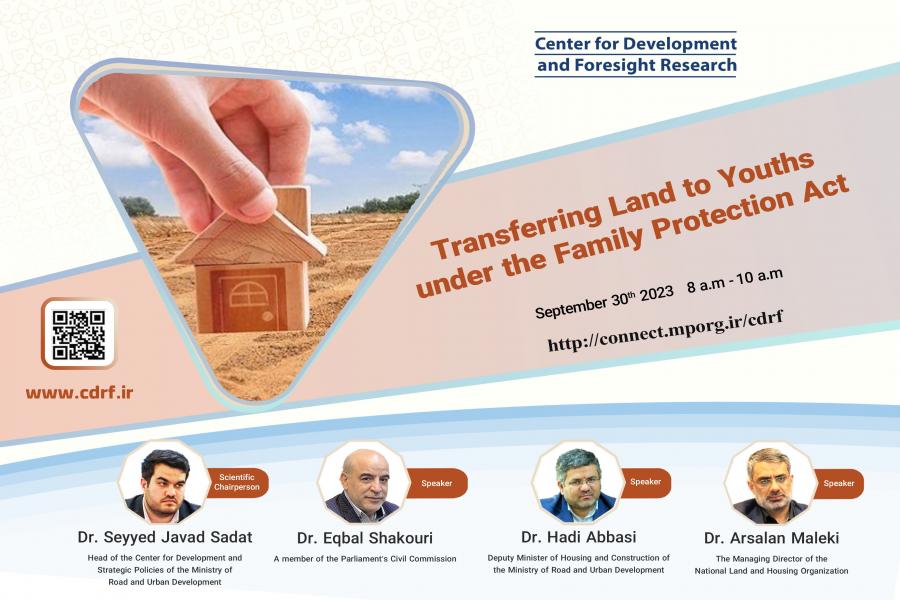
Transferring lands to youths under the Family Protection Act is a positive step in the right direction.
The conference of "Transferring Lands to Youths under the Family Protection Act: Challenges and Policy Recommendations" was held by the participation of notable figures. It is stated that the government is committed to supporting the family and youth population, and the land transfer program is a positive step in the right direction. Also, it is pointed out that it is important to ensure that the program is implemented effectively and efficiently, and that all eligible households are able to benefit from it.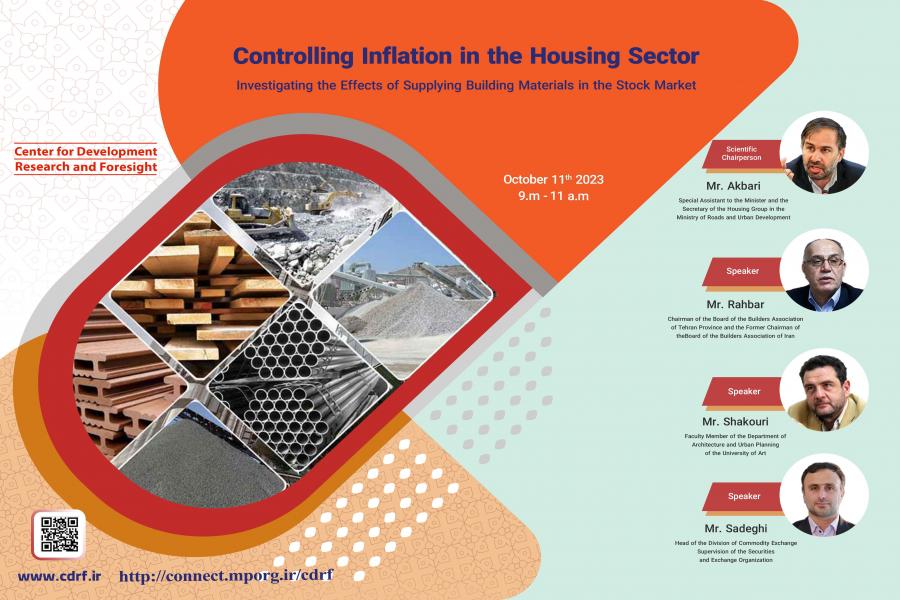
Supplying Building Materials in the Stock Market is a Matter with Controversial Perspectives.
The Center for Development and Foresight Research recently organized a specialized conference focused on addressing inflation in the housing sector, specifically examining the effects of supplying building materials in the stock market. The conference was led by Mr. Rouhollah Akbari, a special assistant to the Minister and the secretary of the housing group in the Ministry of Roads and Urban Development. Various experts from academia and industry presented their perspectives so that a comprehensive outlook can be provided to all interested in this topic.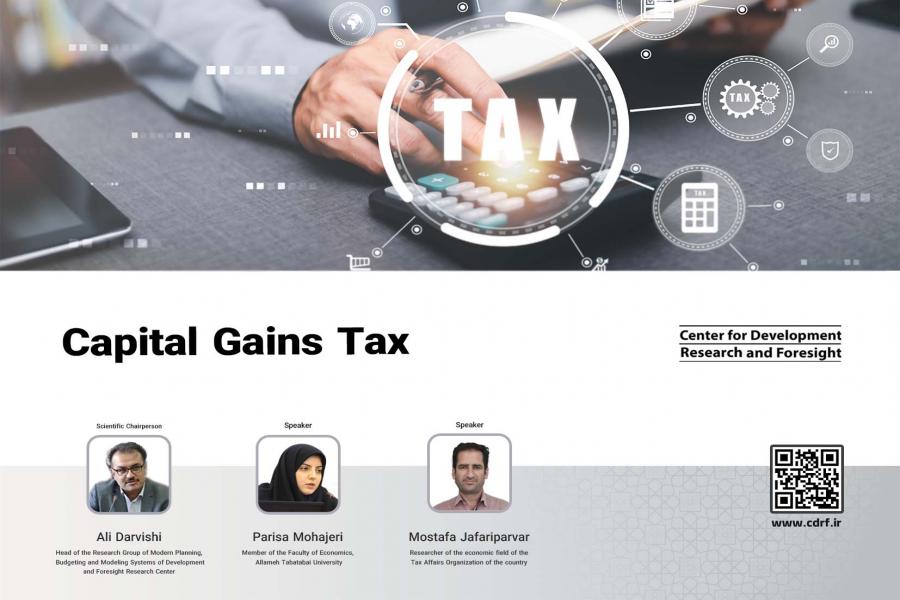
Capital Gains Tax in Iran
Iran’s 2022 budget projects tax collection to make up over 80% of the expected revenues, leading to a negative operational balance due to high government expenses. To address this, the government plans to increase tax revenues by identifying new tax bases and implementing a capital gains tax plan. However, concerns exist about the efficiency of the current tax system and the social impact of the capital gains tax law. 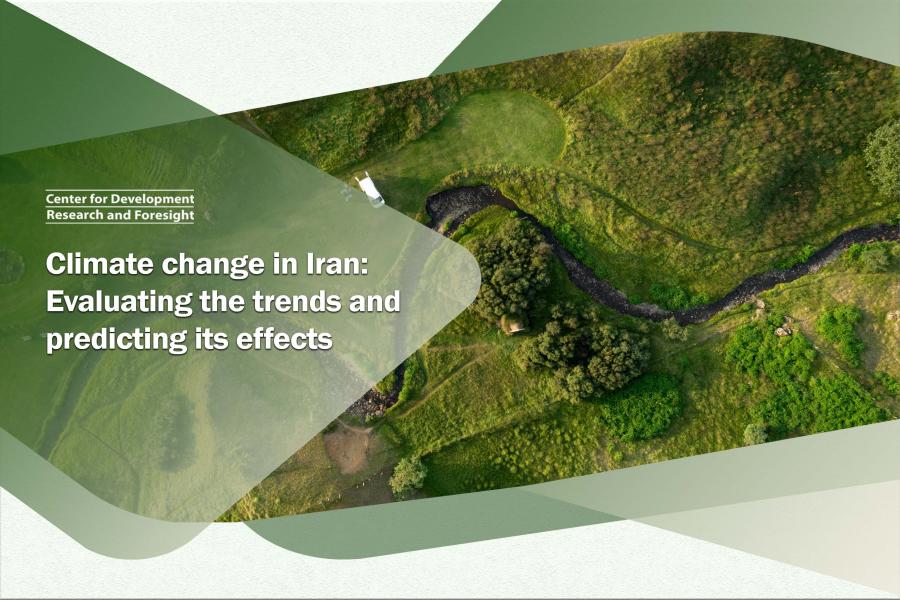
Climate change in Iran: Evaluating the trends and predicting its effects
Climate change and global warming have been one of the issues that have captured the attention of many researchers since the late twentieth century and have become the most significant challenge of the present century. The Earth's weather has been disrupted during these years, and its temperature has been increasing day by day.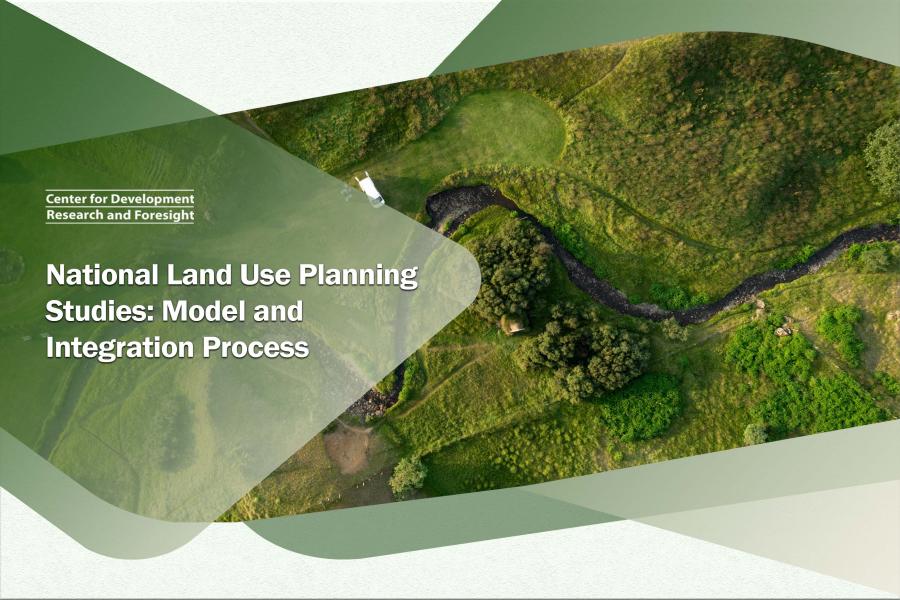
National Spatial Planning Studies: Model and Integration Process
Spatial planning is the process of designing a desirable spatial organization of activities, population, and their impacts on territory. Therefore, its main objective is to consider sectoral and regional balances and balanced land use in formulating scenarios and determining the preferred pattern of population and activity distribution.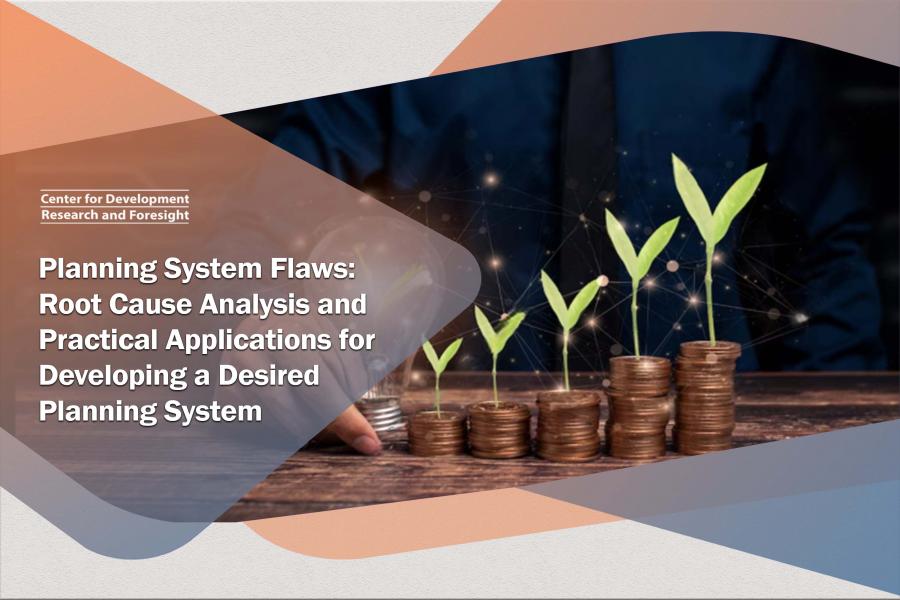
Planning System Flaws: Root Cause Analysis and Practical Application for Developing a Desired Planning System
The objective of this report is to comprehensively analyze and identify the underlying causes of deficiencies within the planning system of the country. The report examines the development programs implemented over the past 45 years, assesses the legal framework, and evaluates the objectives and performance of the planning system.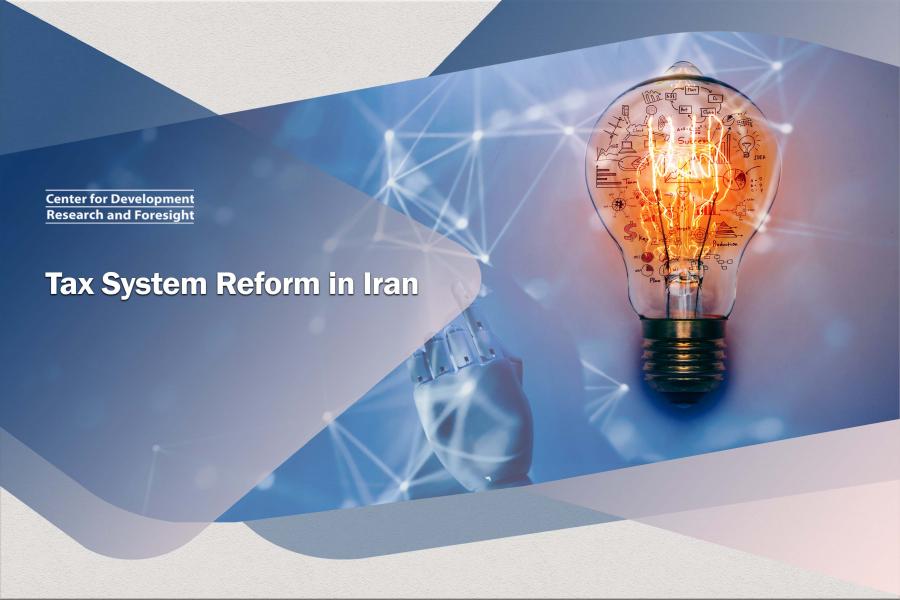
Tax System Reform in Iran
One of the most formidable challenges encountered by taxpayers within the Value Added Tax (VAT) system is the delay in VAT refunds. This delay disrupts the tax credit mechanism, transforming the consumption tax into a production or export tax.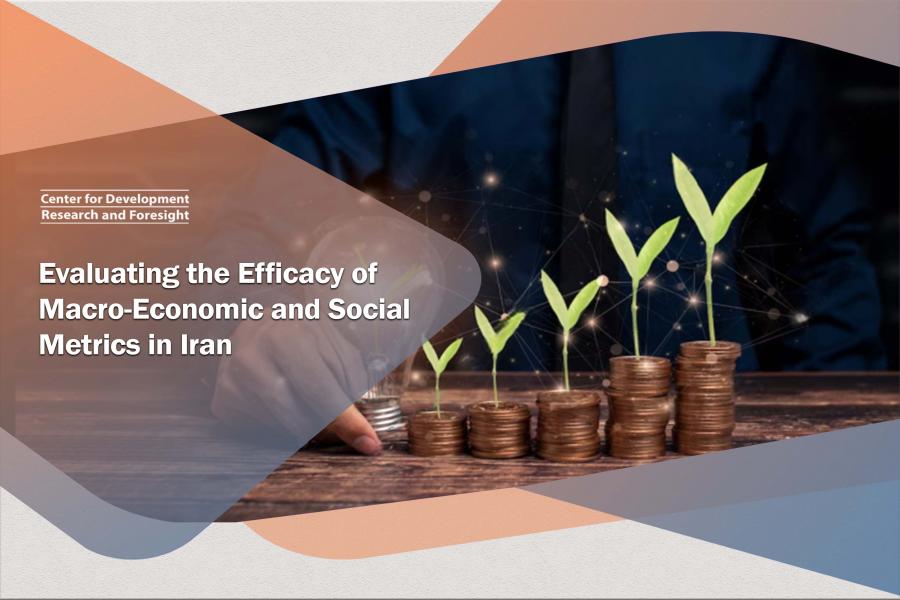
Evaluating the Efficacy of Macro-Economic and Social Metrics in Iran
The purpose of this report is to identify the root cause of the flaws in the planning system in the country. The report takes a general look at development programs in the last 45 years, assay the structure of laws, and examines the goals and performance of the planning system.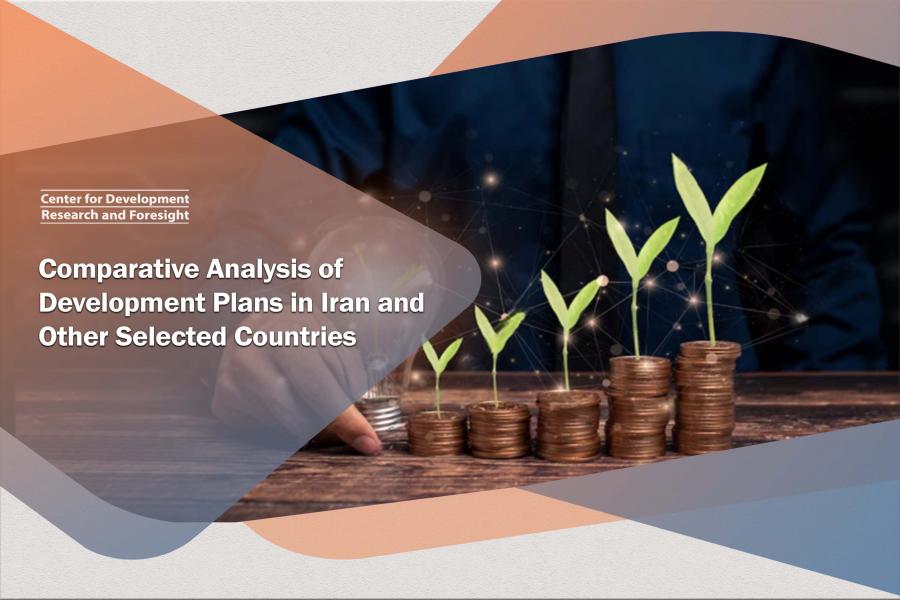
Comparative Analysis of Development Plans in Iran and Other Countries
The concept of development has been greatly influenced by the need for reconstruction and prosperity in countries involved in World War II, as well as the modernization and progress of other countries. However, development is not just about economic growth. It also includes improving income distribution, reducing poverty, expanding production capacities, and providing education, healthcare, and communication services. In essence, development aims to improve the overall quality of life and covers various aspects.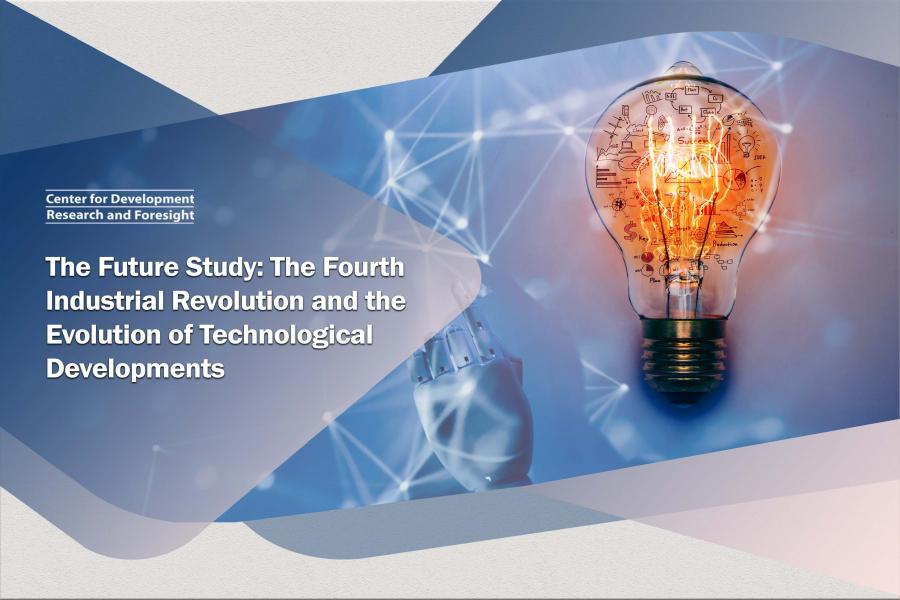
The Future Study: The Fourth Industrial Revolution and the Evolution of Technological Developments
This research delves into the concept of the fourth industrial revolution, exploring its dimensions and multifaceted impacts across various domains. It examines the profound influence of technological advancements on the future of transportation, employment, and production while investigating the intricate relationship between technological developments and the water challenge. Additionally, it delves into the impact of technological advancements on agriculture and presents a comprehensive overview of the current state of the country's science, innovation, and technology sector. A thorough analysis of the country's strengths, weaknesses, opportunities, and threats in relation to technological developments is also provided.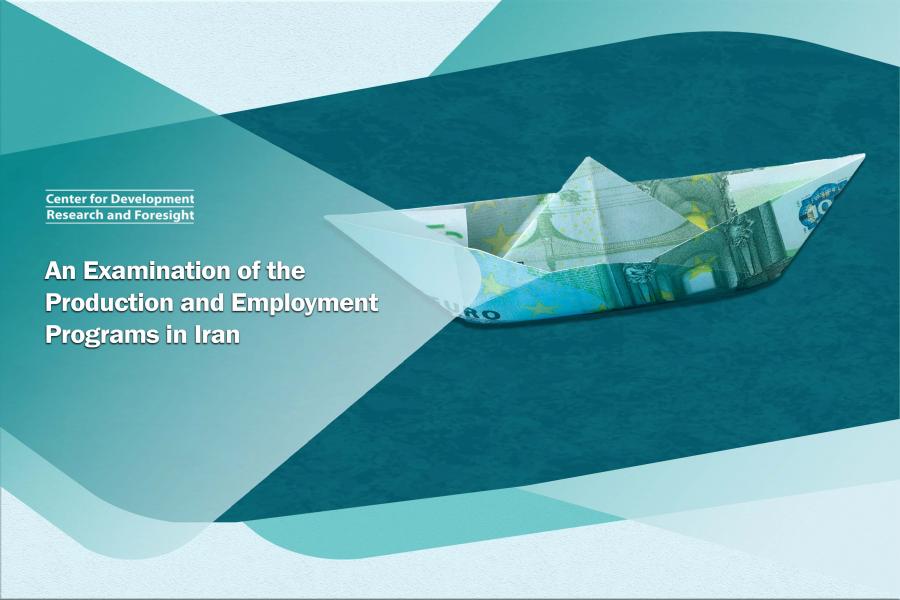
An Examination of the Production and Employment Programs in Iran
Commencing in 2016, the Iranian annual budget legislation has consistently highlighted employment support, production and employment, as articulated in Article 18. A comprehensive examination has been undertaken on the way that Article 18 has been performed within this specified duration. The examination disclosed the existence of certain deficiencies in planning.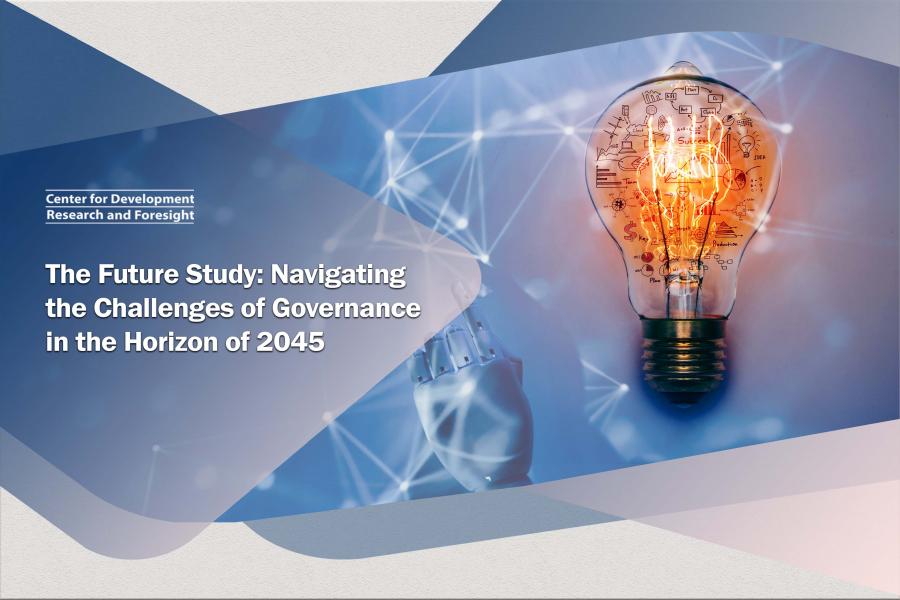
The Future Study: Navigating the Challenges of Governance in the Horizon of 2045
Spatial Planning has been characterized as a means of reclaiming land and asserting sovereignty, essentially establishing it as a category of governance and policy-making. As such, it represents a continuous evolution of governance approaches. The Spatial Planning document draws upon inputs from the political realm and public policies, culminating in a national document that serves as a public policy notification. Given that governance is the primary institution established by a society to overcome existing challenges and achieve desired outcomes, the government's utilization of the national spatial planning document fulfills a distinctly governance-oriented function. This functional affinity necessitates careful consideration of governance processes when selecting tools, including the national spatial planning document, for long-term use.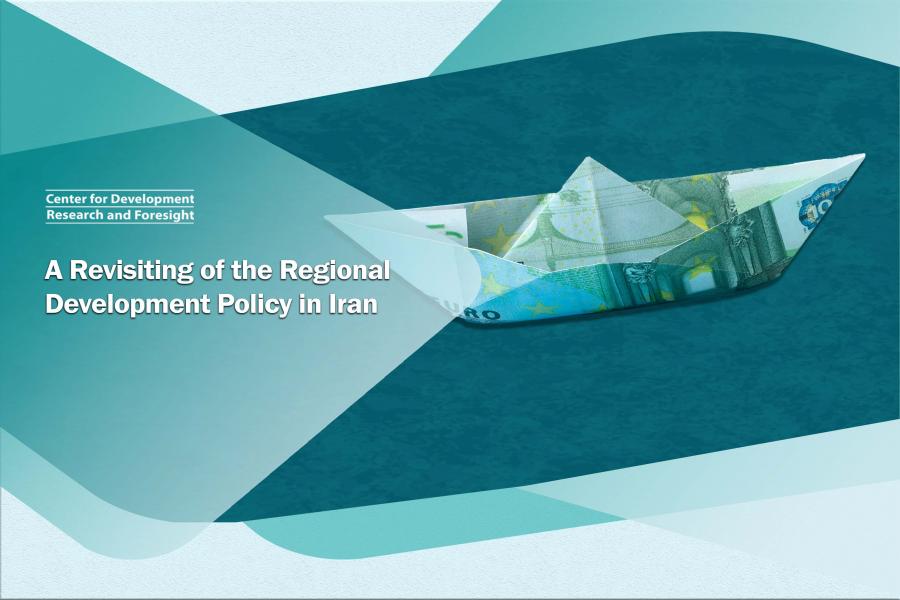
A Revisiting of the Regional Development Policy in Iran
This report elucidates the paradigm shifts pertaining to regional development policies in Iran. These policies have been predicated on two diametrically opposed economic growth strategies: the growth pole strategy, which centralizes investments in central regions, and distribution and redistribution policies, which are fundamentally anchored in principles of social justice.
Evaluating the Taxable Potential of Rental Income from Residential Properties and Vacant Homes in 2022
The imposition of a tax on vacant residential units is believed to influence behavior and align the vacancy rate with its natural level. From this perspective, the total tax capacity of vacant residential units is estimated at 12 thousand billion tomans, with 40% attributed to Tehran province. Given the current state of the housing market, it is deemed necessary for the government to intervene through the implementation of a tax law targeting vacant housing units. This serves as a regulatory mechanism to manage the housing market, control speculation, and reduce the profitability of unproductive activities in the housing sector.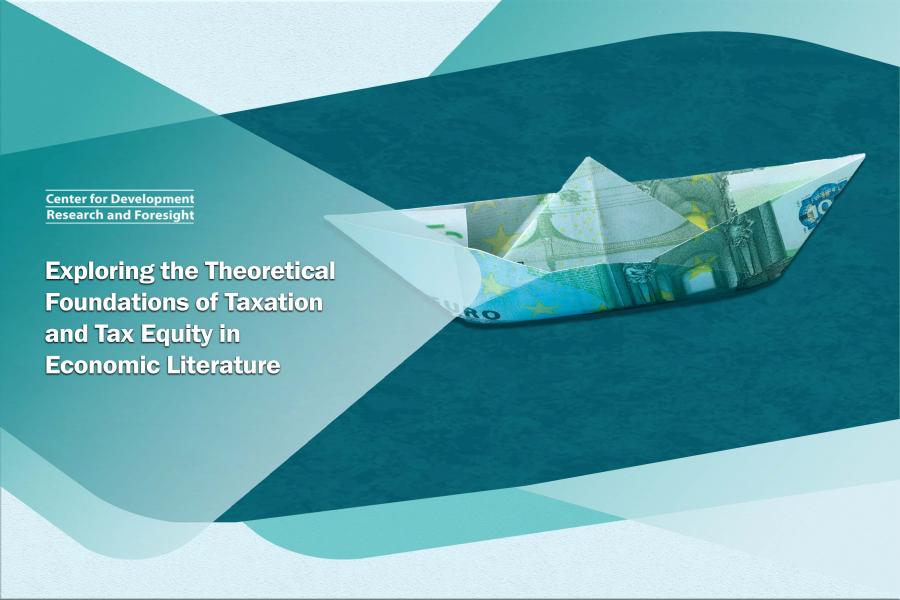
Exploring the Theoretical Foundations of Taxation and Tax Equity in Economic Literature
This report provides an in-depth exploration of the concepts of taxation and tax equity within the context of economic literature, illuminating the pivotal role of value judgments and assumptions in shaping tax policy and fairness. It underscores the notion that tax equity is predicated on specific assumptions such as the diminishing marginal utility of income and a universal utility function for all taxpayers. Acceptance of these assumptions lays the groundwork for advocating a fair tax system, whether proportional or progressive.
Promoting Smart Growth: A Strategic Approach to Nurturing Innovation and Entrepreneurship in Iran
Economic growth is a fundamental driver of national prosperity, leading to improvements in per capita income, living standards, and national strength. Iran's development plans, such as the twenty-year vision and the sixth development plan, underscore the importance of achieving high and sustainable economic growth. To realize this goal, it is essential to carefully evaluate the factors influencing economic growth and formulate appropriate policies to address them.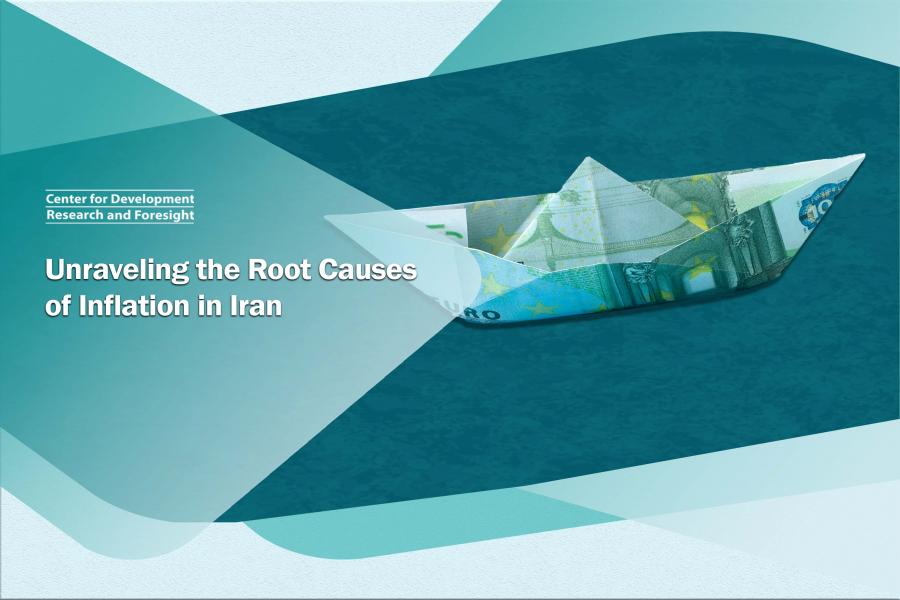
Unraveling the Root Causes of Inflation in Iran
High and persistent inflation poses a significant challenge to Iran's economy, with an annual average inflation rate of 20% impacting the socio-economic well-being of households. While there are diverse viewpoints on the root causes of this enduring inflation, a majority of economists argue that the dynamics of inflation in Iran should be considered since it has effects on the volume of liquidity and its components.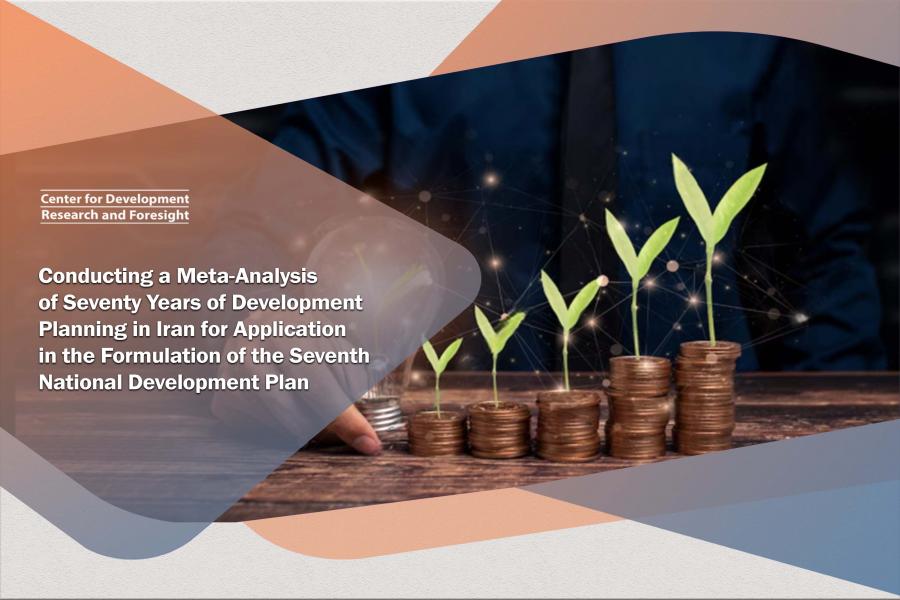
Conducting a Meta-Analysis of Seventy Years of Development Planning in Iran for Application in the Formulation of the Seventh National Development Plan
The development plan in Iran has been shaped by the evolution of the plan itself, following an established planning procedure. A crucial factor for successful planning is the establishment of a shared understanding and consensus on regulations, which serve as a blueprint for the content and structure of the plan among policymakers and planners. Given the importance of this issue, and recognizing that the formulation of regulations will be a pivotal step in advancing the seventh development plan, this study aims to delineate and clarify the regulatory elements of this plan.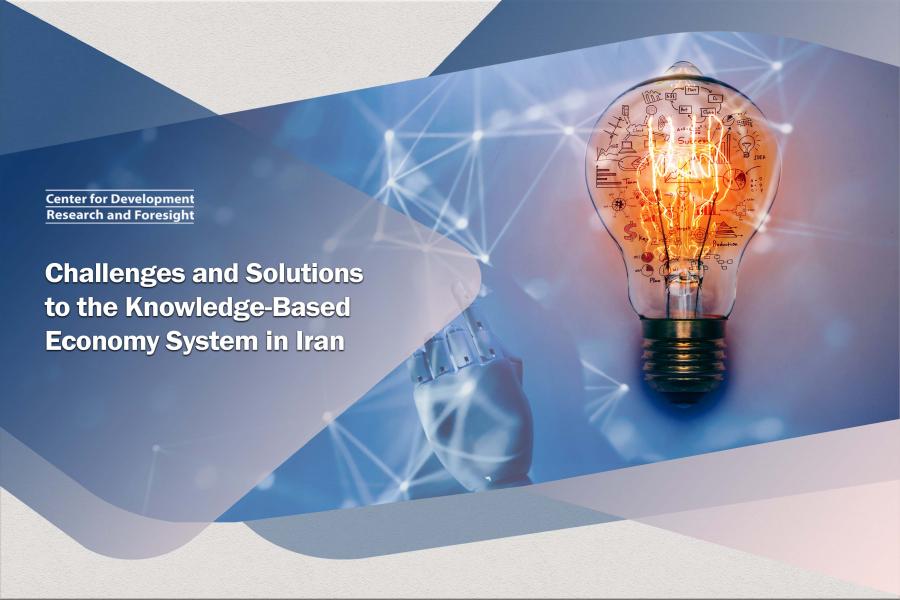
Challenges and Solutions to the Knowledge-Based Economy System in Iran
In this study, the concepts of knowledge, innovation and knowledge-based economy have been introduced and then the requirements of moving towards a knowledge-based economy have been investigated. Based on the presented materials, one of the standard models that explains the elements of the knowledge-based economy is the model provided by the World Bank, which includes four pillars of education and human capital, information and communication technology infrastructure, effective innovation system, and economic and institutional incentives. In the following, taking into account that the effective innovation system is the most important element of the knowledge-based economy and includes other elements as well, the concepts related to it and its structural and functional aspects have been examined.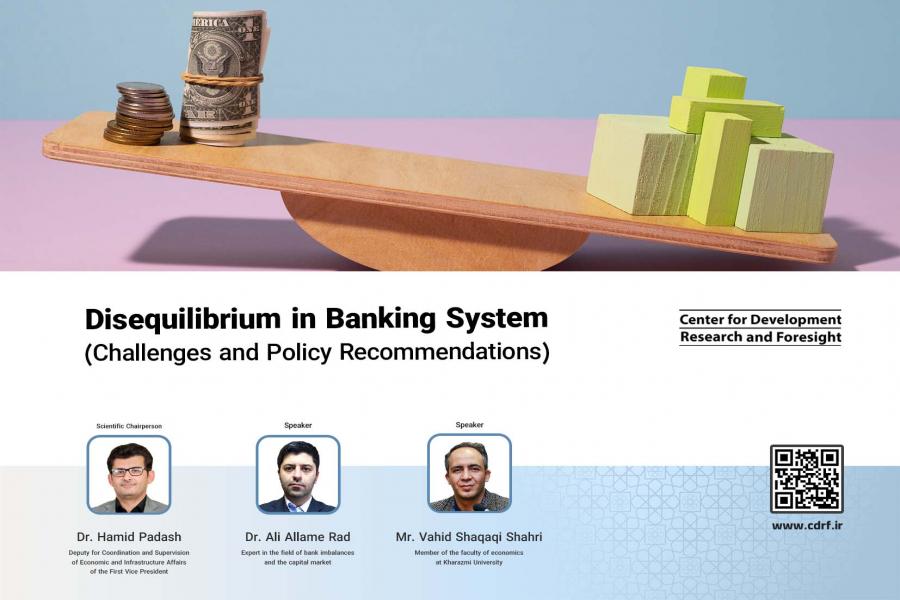
Disequilibrium in Banking System: Challenges and Policy Recommendations
The banking sector's disequilibrium has emerged as a pervasive and enduring challenge within the nation's macroeconomic framework. A series of strategic missteps have plagued the banking sector over the preceding four decades, including: the absence of unified Central Bank oversight from the late 1960s until 1994, despite formal recognition (substantive supervision remained deficient), the premature privatization of the banking industry without adequate national economic preparation, the imposition of government expenditures on private and non-governmental banks, particularly to offset a portion of the budget deficit, the perpetuation of a traditional view of money as a private commodity (a primary factor exacerbating domestic inflation), and vacillation between disparate economic schools, shifting from socialist to capitalist ideologies.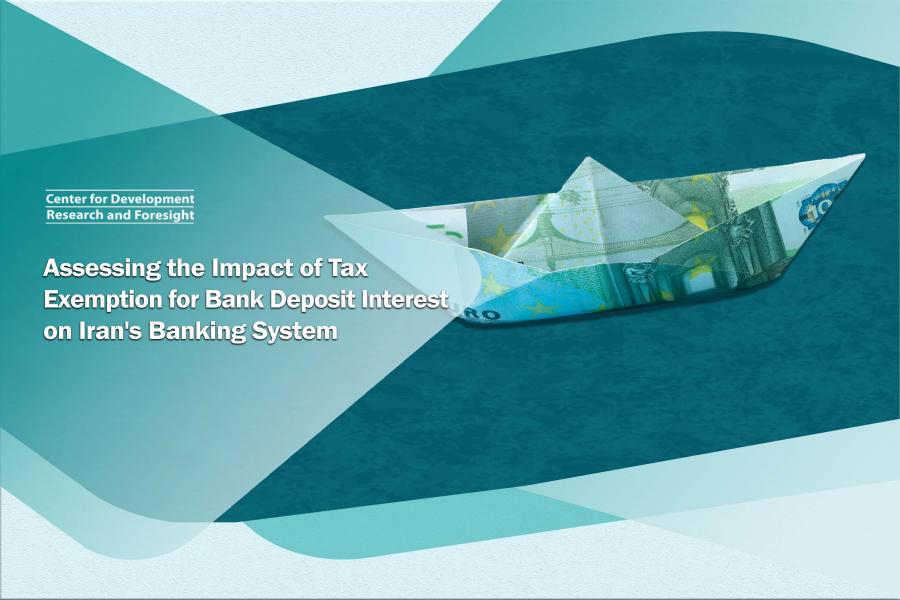
Assessing the Impact of Tax Exemption for Bank Deposit Interest on Iran's Banking System
The exemption of bank deposit interest from taxation within Iran’s financial system is a topic of considerable debate in this field. This research investigates whether the tax on deposit interest should be regarded as an integral component of the tax system or if it should continue to be exempt. Addressing this question, which forms the crux of this study, necessitates a comprehensive review of tax literature, the structure of Iran’s tax system, and its economic, social, and political conditions. This research adopts a three-step approach to address the issue of exempting bank deposit interest from taxation.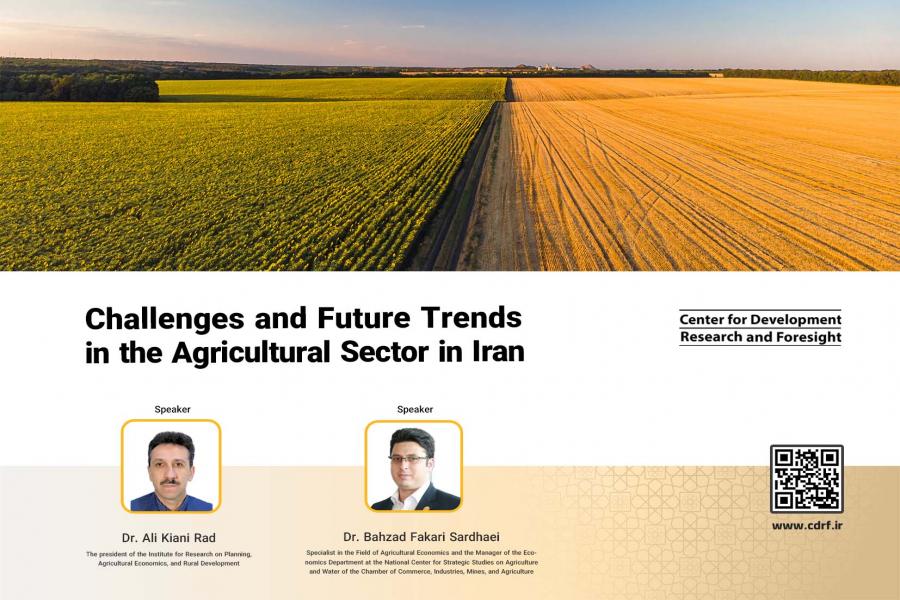
Challenges and Future Trends in the Agricultural Sector in Iran
Agriculture plays a critical role in Iran's economy, providing employment for over 15% of the workforce. While the sector holds immense potential for growth and development, it also faces significant challenges. Identifying these challenges and their impact on the agricultural system is essential for policymakers and stakeholders to formulate effective and targeted policies that address both current and potential issues, thereby enhancing the sector's resilience and enabling it to achieve sustainable development goals.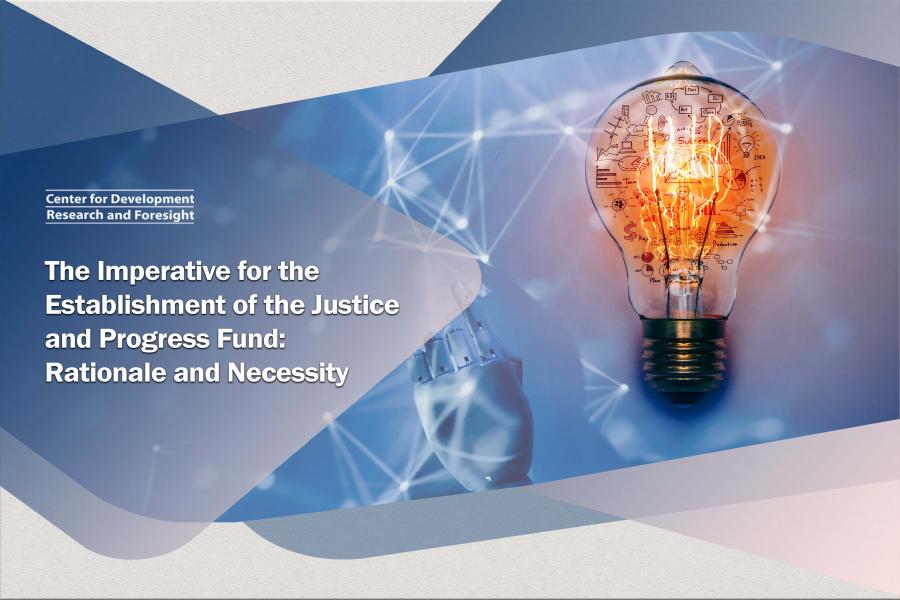
The Imperative for the Establishment of the Justice and Progress Fund: Rationale and Necessity
The Center for Development Research and Foresight, commissioned by the Country's Program and Budget Organization's Directorate, has embarked on a study titled "Progress and Justice Fund." This research seeks to evaluate the proposed scenarios for establishing the country's growth and development funds. Drawing upon the experiences of the Omid Entrepreneurship Fund's SWOT analysis, this study aims to provide insights into the formation of national growth and development funds. The primary objective of this research is to identify the dimensions, strengths, opportunities, potential bottlenecks, and challenges associated with the Progress and Justice Fund, while also proposing solutions for its implementation.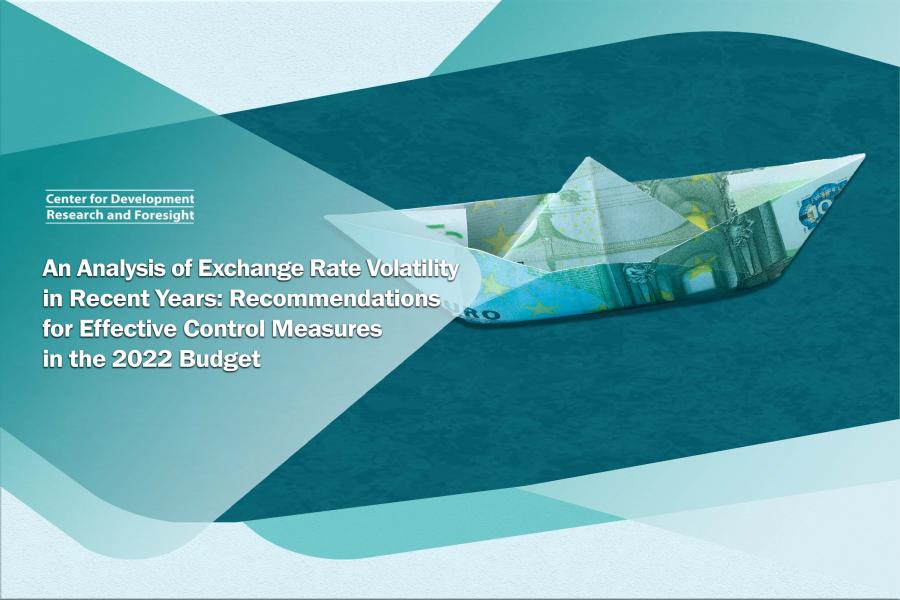
An Analysis of Exchange Rate Volatility in Recent Years: Recommendations for Effective Control Measures in the 2022 Budget
The foreign exchange market, a crucial element of the economy, exerts a profound influence on the regulation of other economic sectors. In recent years, significant exchange rate fluctuations have been observed, predominantly stemming from the direct impact of international sanctions and the improper management of the foreign exchange market. These fluctuations have emerged as a primary catalyst for macroeconomic instability.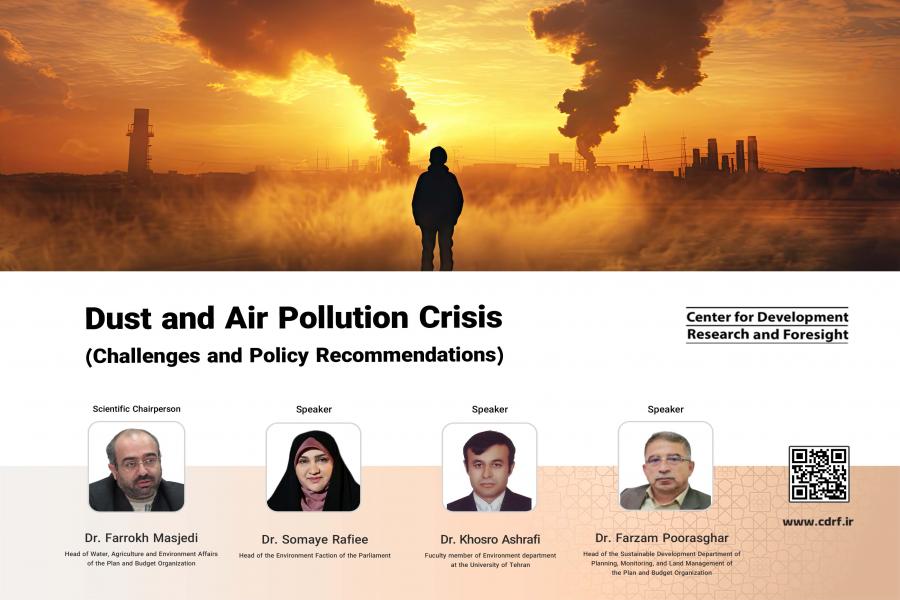
Dust and Air Pollution Crisis
The phenomenon of airborne dust particles as pollutants has detrimental implications for regions exposed to it. The challenges posed by dust and sandstorms are manifold, including weak environmental diplomacy in addressing transboundary environmental risks, overlapping responsibilities of government agencies, the growth of domestic dust emission sources influenced by deficiencies in water resource management, a lack of understanding of the interconnectedness of gradual disasters such as drought, desertification, land degradation, and dust storms, and the adoption of reactive rather than proactive approaches.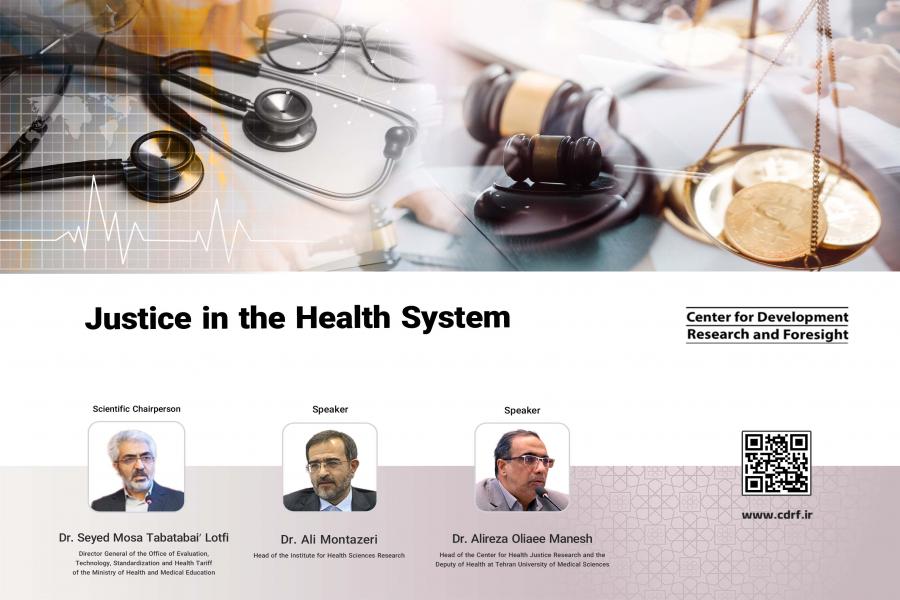
Justice in the Healthcare System
In the realm of healthcare, justice signifies equal access to healthcare services for all individuals. Key indicators for evaluating justice in health include justice in distribution, payment, access, and financial provision. Health equality entails implementing policies and allocating resources in a manner that individuals with fewer resources and those facing deprivation and discrimination (due to factors such as race, gender, age, disability, or income) experience significant improvements in their health and quality of life.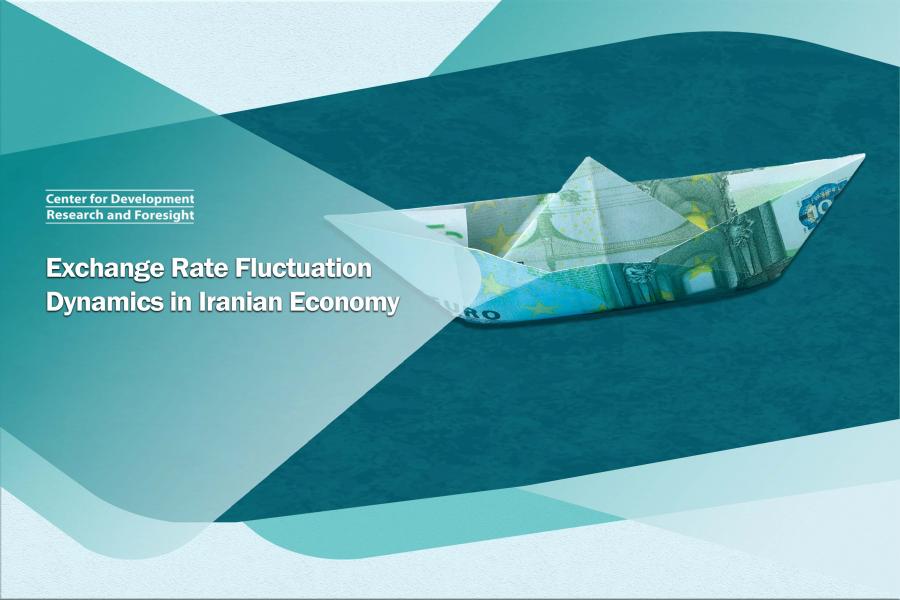
Exchange Rate Fluctuation Dynamics in Iranian Economy
Iran's long-standing exchange rate volatility, marked by a persistent upward trend throughout the past century, has intensified in the latter half of the 20th century. These exchange rate shocks have primarily stemmed from various protectionist and regulatory policies implemented by successive Iranian governments. The prevalence of multiple exchange rates, attempts to suppress exchange rates through administrative measures, and the fixation of exchange rates have all contributed to these fluctuations. A notable turning point occurred in 2018 when the Iranian government introduced a preferential exchange rate of 4200 alongside the prevailing market rate, in response to the United States' withdrawal from the Joint Comprehensive Plan of Action (JCPOA) and the subsequent need to manage the foreign exchange market.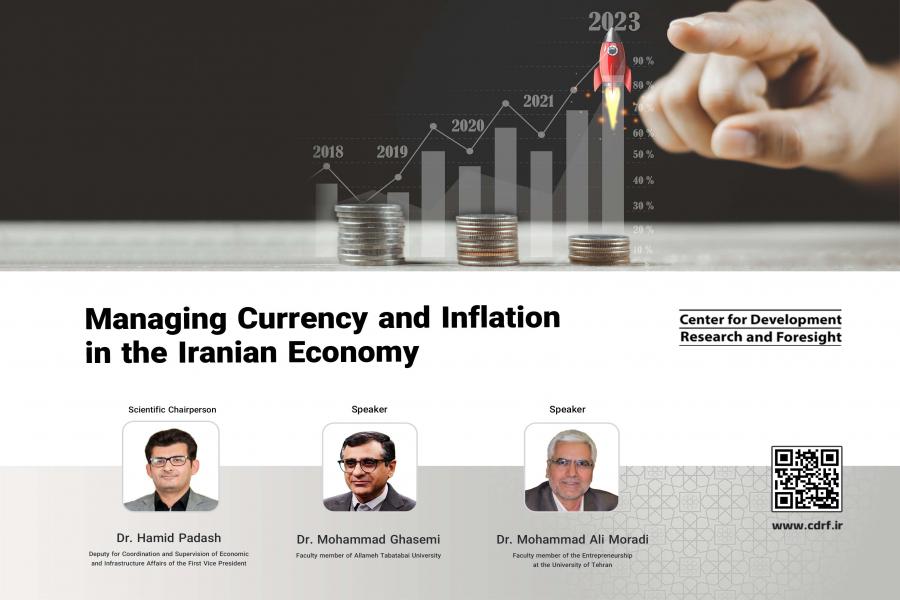
Exchange Rate and Inflation Policies in Iran's Economy
Inflation and exchange rate fluctuations have been persistent challenges in Iran's economy for several decades, leaving policymakers grappling with these issues. Double-digit inflation rates and currency shocks have become almost commonplace, characterizing the country's macro-economy for nearly half a century. However, in the past five years, these two issues have exacerbated Iran's economic situation, leading to unprecedented levels of inflation and exchange rates. Addressing inflation has become a priority in the country's policymaking, as reflected in the current year's slogan.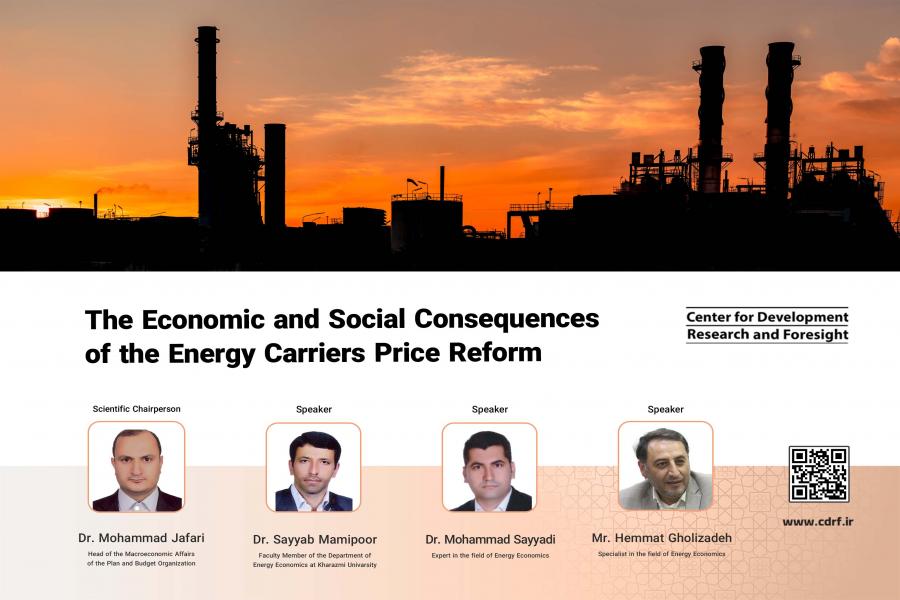
The Economic and Social Consequences of the Energy Carriers Price Reform
Given the significant role of energy in Iran’s economy, the pricing of energy carriers, particularly gasoline, has always been a critical factor in the implementation of government policies and the overall economy of Iran. The Energy Subsidy Reform policy and the appropriate pricing method have consistently posed challenges, with various governments grappling with economic, social, and environmental challenges in gasoline price reforms.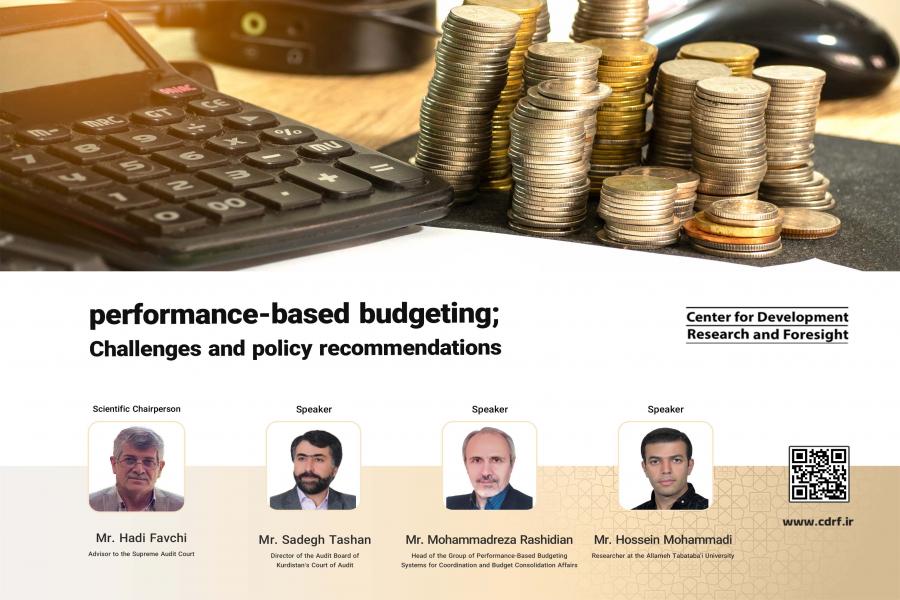
performance-based budgeting; Challenges and policy recommendations
Performance-based budgeting fosters optimal resource utilization, enhances productivity through efficiency improvement, facilitates the achievement of goals, aligns strategic objectives with operational plans, and promotes transparency and accountability. When properly implemented and scientifically managed, this type of budgeting lays the groundwork for good governance and facilitates the realization of societal values.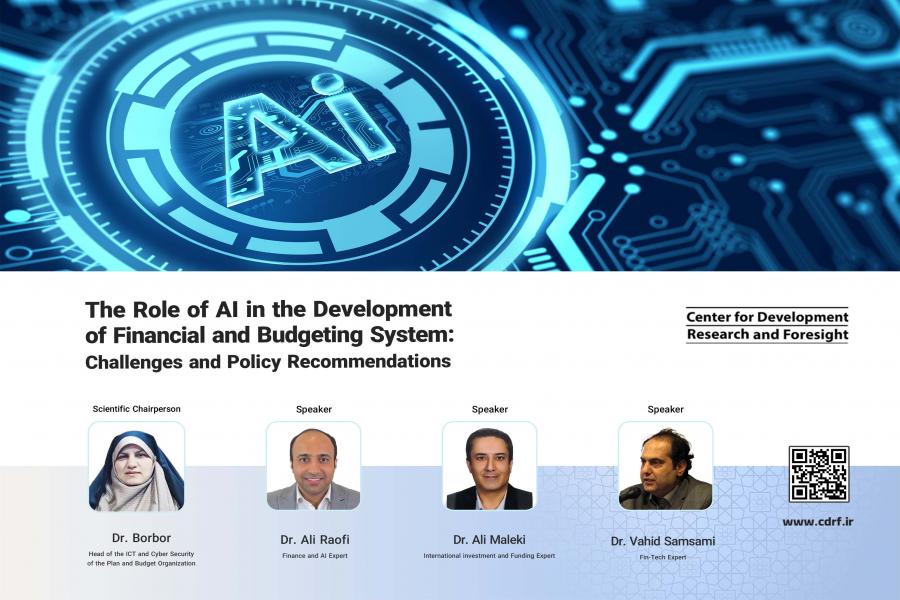
Artificial Intelligence and its role in the Development of Financial Systems and Budgeting
Artificial intelligence (AI) has emerged as a transformative technology, extensively studied and developed over the past seven decades. Its growing prominence has rendered it an indispensable tool for governments worldwide. While AI's potential to enhance decision-making power and quality remains an ongoing area of inquiry, its application in certain policy domains, such as public budget drafting, has received limited attention. This paper delves into the untapped potential of AI in budget allocation, a critical aspect of financial policy.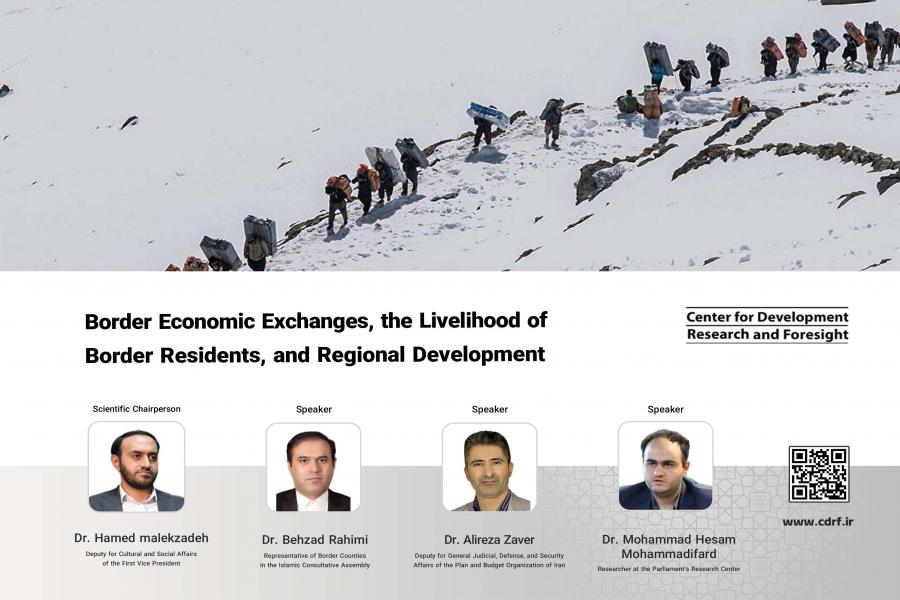
Border Economic Challenges: The livelihood of Residents and Regional Development
The government of Islamic Republic of Iran has long recognized the importance of harnessing the capabilities of the public sector to align with its strategic objectives. To effectively achieve this decentralization, local governance structures must be activated and integrated within the broader framework of national governance. A clear model and procedure for aligning various institutions under local and central governance is crucial for facilitating border economic exchanges. Addressing the existing challenges faced by border residents and leveraging the potential benefits of neighborhood relations require a comprehensive approach that transcends mere confrontation and intervention. Only through a well-defined model of cooperation and collaboration can the existing laws and plans be effectively implemented to improve the livelihoods of border communities and foster regional prosperity.
Maritime Development is a Key to Boast Economic Growth
The recent conference at the Center for Development Research and Foresight highlighted the growing importance of the maritime economy to the country's future. Experts and officials convened to discuss the potential of the seas and coasts to drive growth, create jobs, and address some of the country's long-term challenges.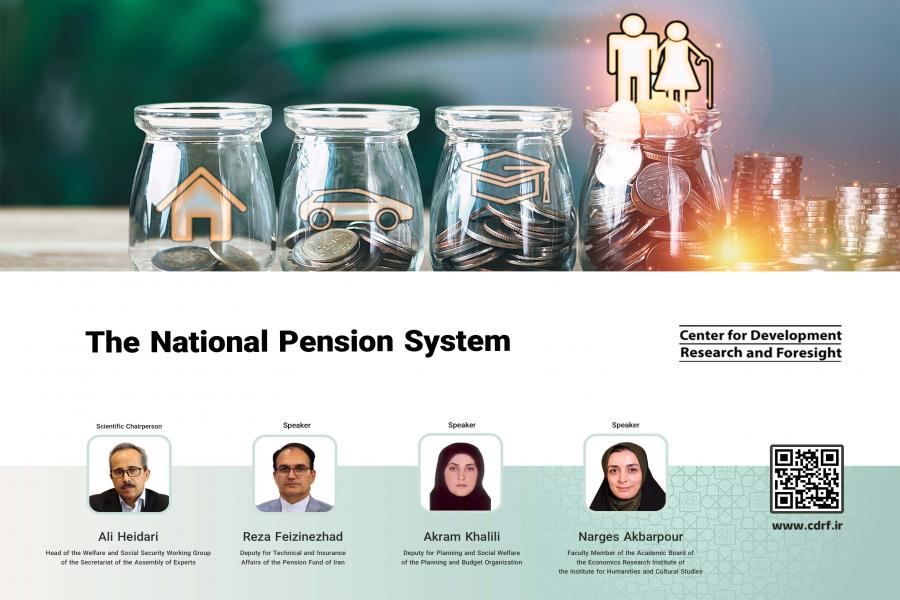
Country’s Retirement System: Challenges and Policy Recommendations
In the conference at the Center for Development Research and Foresight titled “Country’s Retirement System: Challenges and Policy Recommendations”, it is stated that Iran's retirement system is facing a number of challenges, including demographic changes, economic instability, and inadequate coverage for informal sector workers. The government is considering reforms to address these challenges, such as increasing the retirement age, limiting early retirement, and reducing the rate of pension accrual. However, some experts are concerned that these reforms may not be enough to save the system in the long run.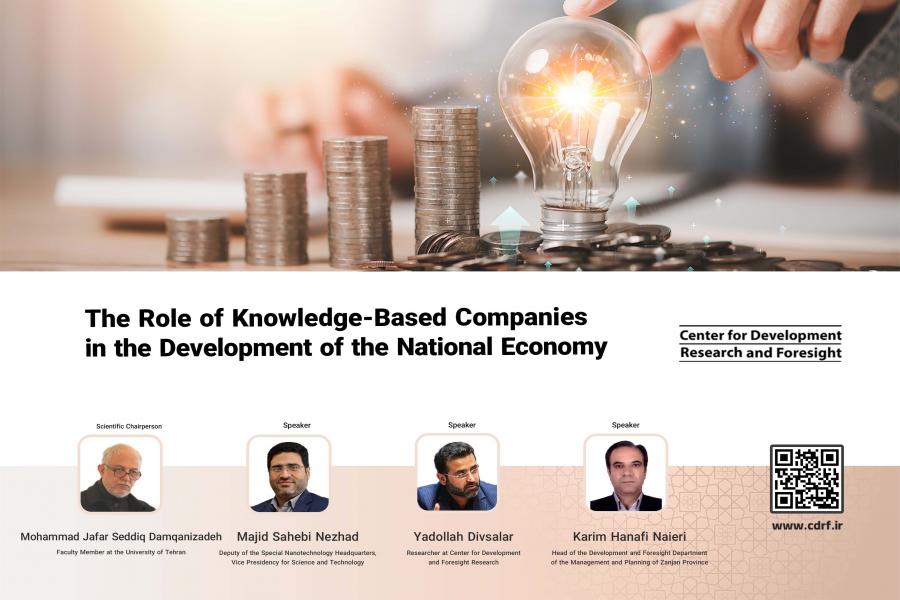
The Role of Knowledge-Based Companies in the Development of the National Economy
The conference titled “The Role of Knowledge-Based Companies in the Development of the National Economy” was held at the Center for Development Research and Foresight to discuss the role of knowledge-based companies in the country's development. The speakers at the conference emphasized the importance of knowledge-based companies for Iran's economic future, due to factors such as sanctions, the country's economic structure, and its geographical location.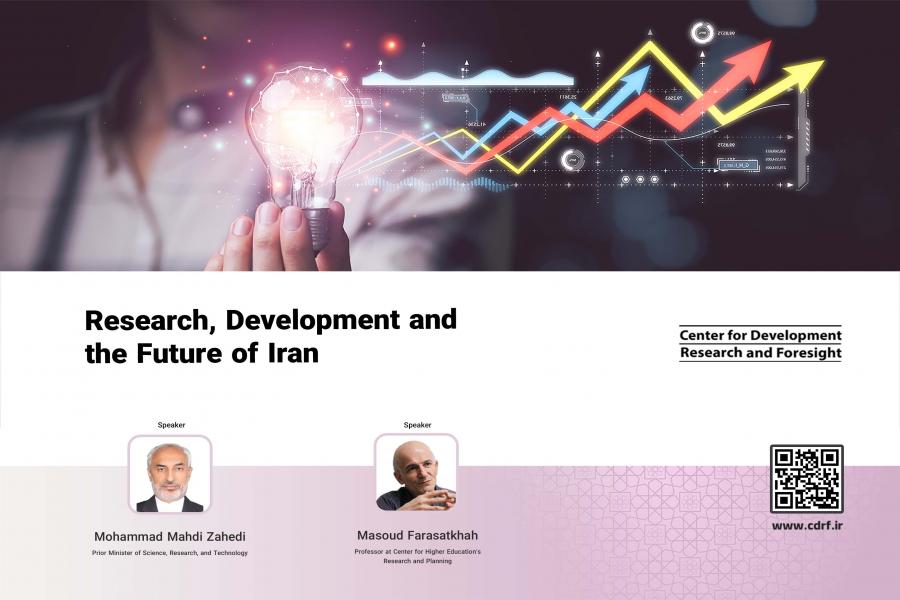
The future of Iran from the lens of Scholars
Iranian officials and experts are calling for a major shift towards "big science" as the key to unlocking the country's full potential and navigating the complexities of the 21st century. This comes amidst a heated debate on the role of science in Iran's development, with emphasis placed on moving beyond small-scale research towards large-scale initiatives the Center for Development Research and Foresight.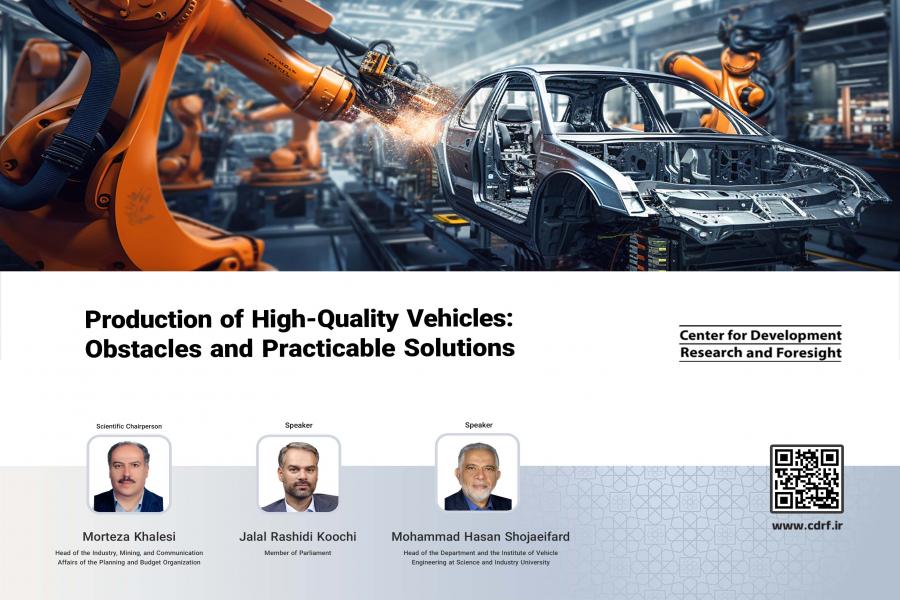
High-Quality Automative Production: Obstacles and Practicable Solutions
In the conference at the Center for Development Research and Foresight it is declared that while Iran's auto industry is roaring back to life, its path to success is far from smooth. With a mix of challenges and opportunities, the country's carmakers are navigating a complex landscape of sanctions, government control, and a growing demand for mobility.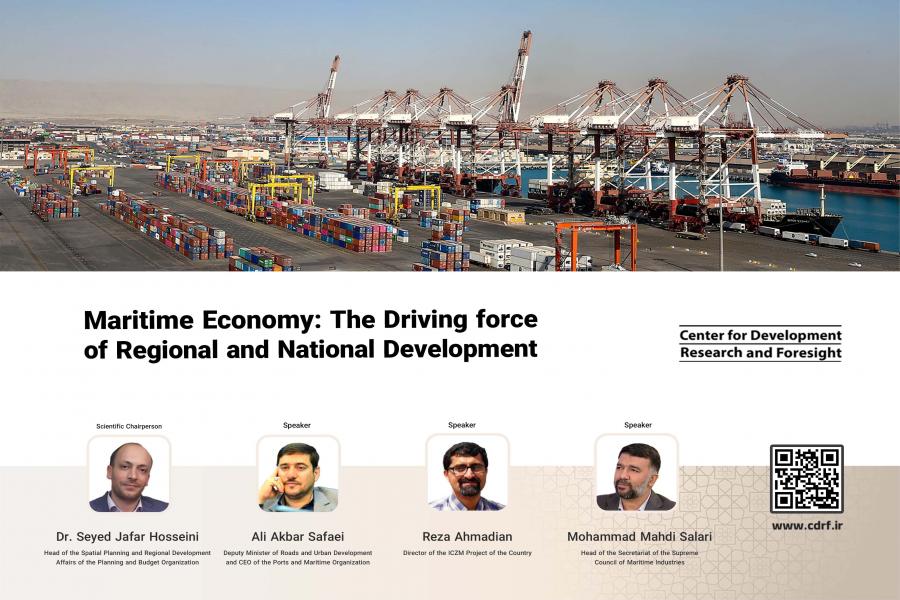
Maritime Development is a Key to Boast Economic Growth
The recent conference at the Center for Development Research and Foresight highlighted the growing importance of the maritime economy to the country's future. Experts and officials convened to discuss the potential of the seas and coasts to drive growth, create jobs, and address some of the country's long-term challenges.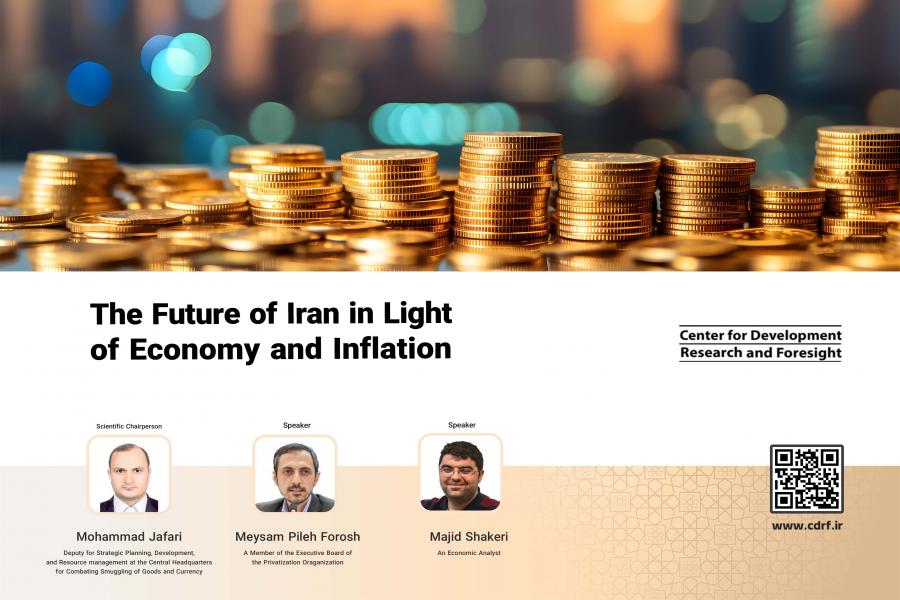
The Future of Iran: From an Economic Perspective
The Center for Development Research and Foresight hosted a pivotal conference titled “The Future of Iran: From an Economic Perspective” with the participation of leading economists and policymakers pointing out the persistent inflation, anemic growth, and deep-seated structural issues.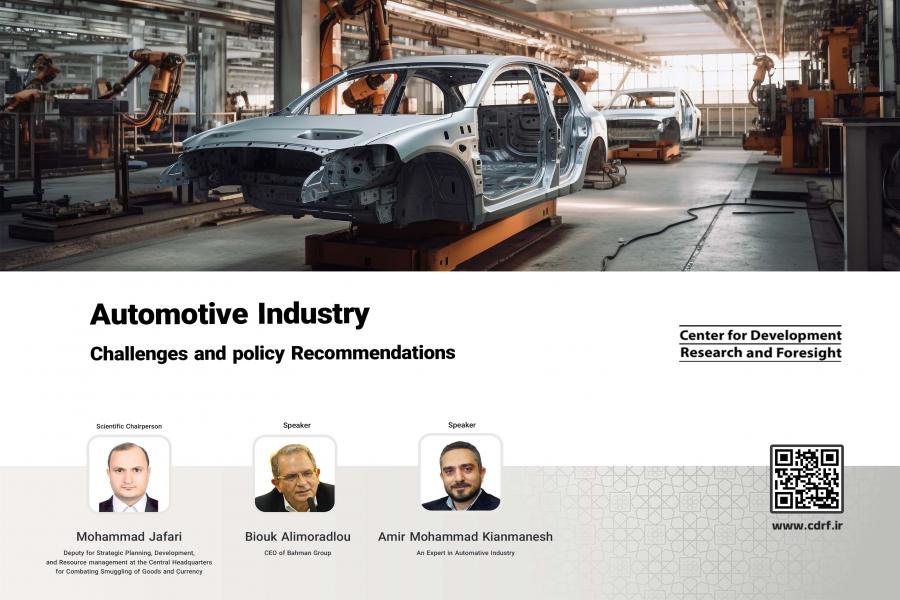
Automotive Industry: Challenges and Policy Recommendations
The recent conference at the Center for Development Research and Foresight, titled "Automotive Industry: Challenges and Policy Recommendations," was held with the participation of notable figures. These included Mohammad Jafari, Deputy for Strategic Planning, Development, and Resource Management of the Central Headquarters for Combating Smuggling of Goods and Currency; Biouk Alimoradlou, CEO of Bahman Group; and Amir Mohammad Kian Manesh, an expert in the automotive industry.
Shedding light on the Minimum Wage Policy in Iran
The recent conference titled “Shedding light on the Minimum Wage Policy in Iran” at the Center for Development Research and Foresight brought together economists and policymakers to discuss the country's wage policies. Hojjatollah Mirzaei, a faculty member at Allameh Tabataba'i University, criticized the recent wage hikes as inadequate and unevenly implemented. He argued that they failed to keep pace with inflation, leaving workers worse off, and called for the government to be more transparent about the basis for the increases. Mirzaei also expressed concern about the lack of consistency across different sectors, noting that some firms struggle to comply with the mandated increases. He emphasized the need for a more nuanced approach that considers the specific challenges of different industries.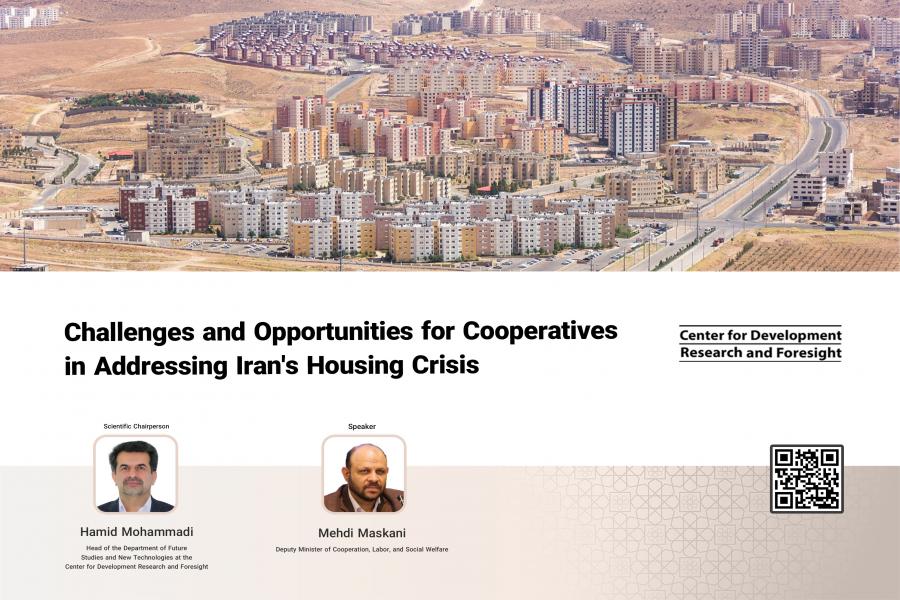
Challenges and Opportunities for Cooperatives in Addressing Iran's Housing Crisis
The recent conference of “Challenges and Opportunities for Cooperatives in Addressing Iran's Housing Crisis” at the Center for Development Research and Foresight brought together experts from various fields to address the critical issue of housing affordability in Iran. The conference highlighted the challenges faced by the Iranian housing market and explored potential solutions, particularly through the lens of cooperative housing models.
Unlocking Potential: Reforming Iran's Free Zones
The conference titled “Unlocking Potential: Reforming Iran's Free Zones” was held at the Center for Development Research and Foresight to discuss the performance of free zones in Iran. The conference was attended by stakeholders from the public and private sectors, including government officials, academics, and businesspeople.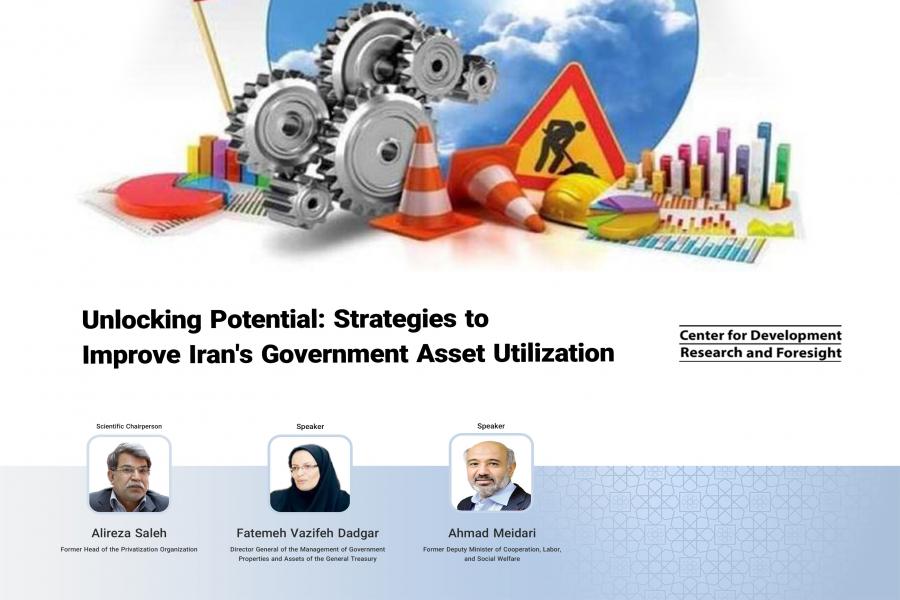
Unlocking Potential: Strategies to Improve Iran's Government Asset Utilization
In the conference titled “Unlocking Potential: Strategies to Improve Iran's Government Asset Utilization” at the Center for Development Research and Foresight aimed at addressing the challenges of managing government assets, Iranian officials discussed issues ranging from inefficient asset allocation to the need for legal reforms. The conference brought together experts from various sectors to explore strategies for maximizing the value of government-owned properties and resources.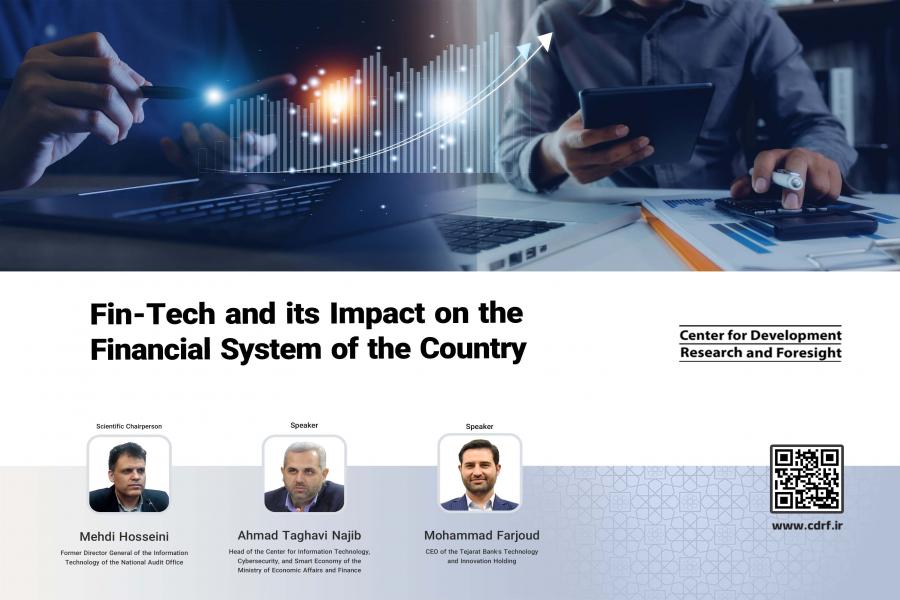
The Role of Financial Technologies in the Country’s Economic System: Challenges and Policy Recommendations
The scientific-specialized conference, titled "The Role of Financial Technologies in the Country's Economic System: Challenges and Policy Recommendations" at the Center for Development Research and Foresight brought together experts from various fields to discuss the potential and pitfalls of FinTech in Iran's developing economy.
Extraterrestrial Cultivation: Water and Food Security
In a move that could revolutionize its agricultural sector, Iran is setting its sights on extraterrestrial cultivation, aiming to tap into the water and soil resources of other countries to improve food security and expand its agricultural exports. This ambitious plan was discussed at the conference titled “Extraterrestrial Cultivation: Water and Food Security” at the Center for Development Research and Foresight.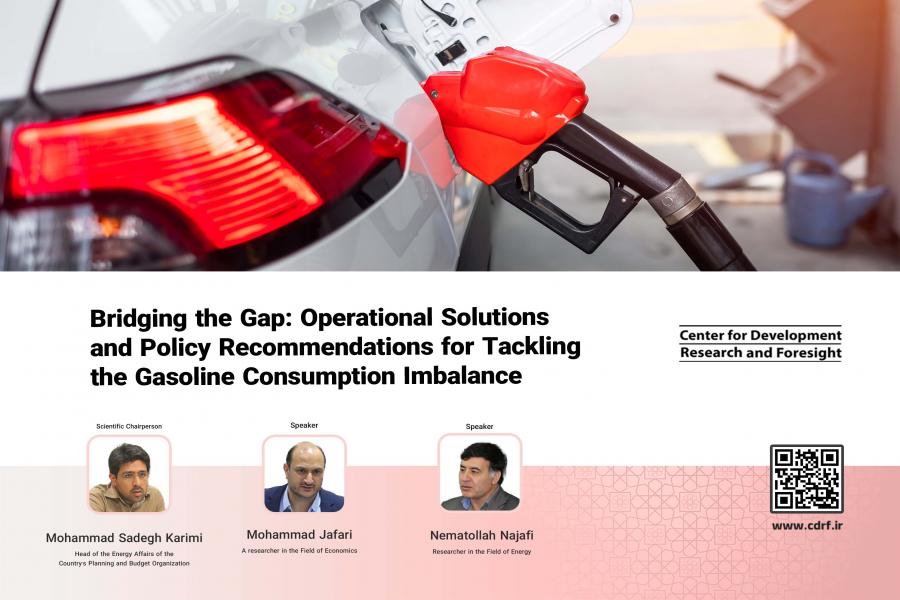
Bridging the Gap: Operational Solutions and Policy Recommendations for Tackling the Gasoline Consumption Imbalance
Iran is facing a growing problem at the pump. The country is burning through gasoline at an alarming rate, and experts are calling for action. In the recent conference titled “Bridging the Gap: Operational Solutions and Policy Recommendations for Tackling the Gasoline Consumption Imbalance” at the Center for Development Research and Foresight, key figures from government and academia discussed a range of solutions to bridge the gap between Iran's fuel consumption and supply.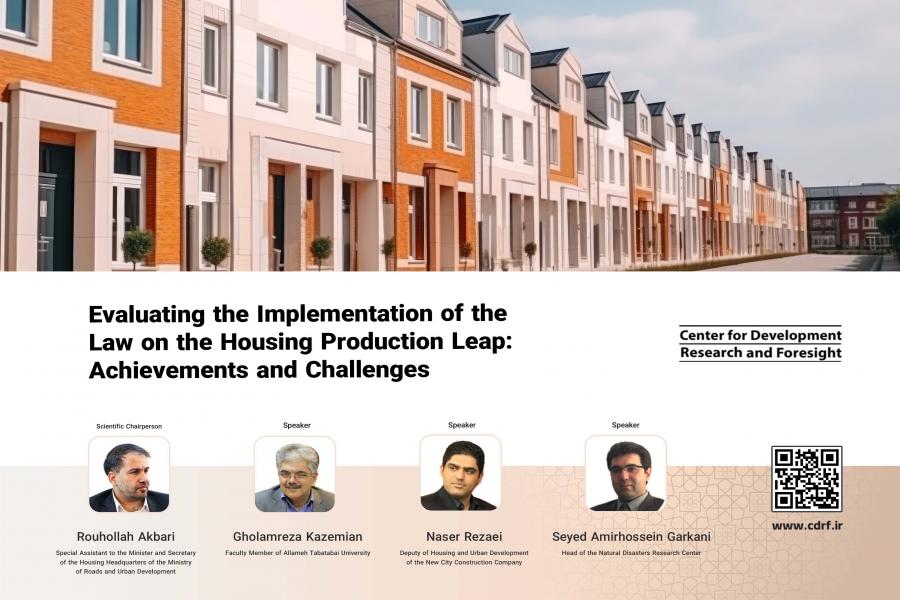
Evaluating the Implementation of the Law on the Housing Production Leap: Achievements and Challenges
In a recent conference titled "Evaluating the Implementation of the Law on the Housing Production Leap: Achievements and Challenges" hosted by the Center for Development Research and Foresight (CDRF) it has been an enlightening debate surrounding the effectiveness of the Law on Housing Production Leap.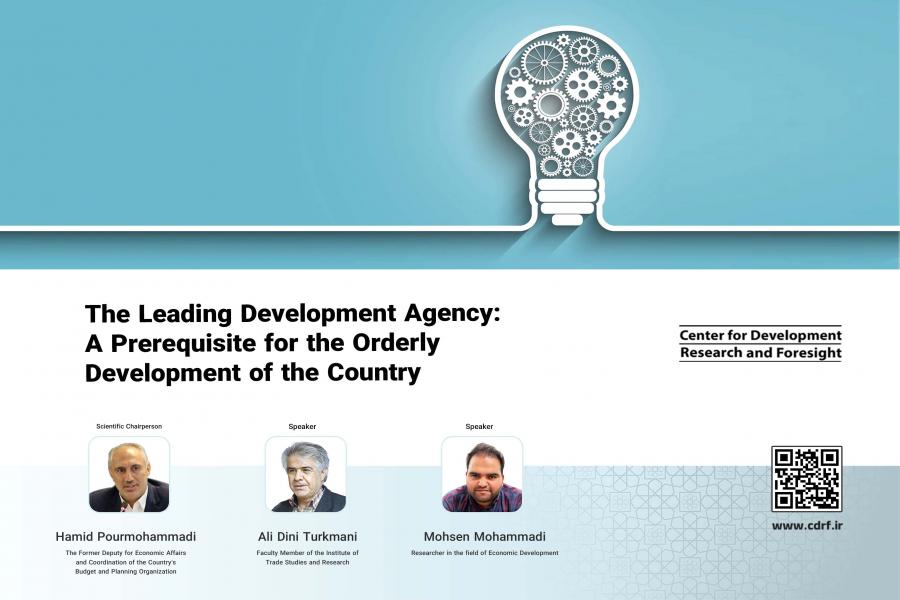
The Leading Development Agency: A Prerequisite for the Orderly Development of the Country
Iran might be looking to a new approach to development. The recent conference at the Center for Development Research and Foresight in tandem with the University of Tehran's Faculty of Governance titled "The Leading Development Agency: A Prerequisite for the Orderly Development of the Country" addressed the significance of a super agency with more power and a sharper focus than existing government bodies..jpg)
SMEs and Strategies to Overcome Barriers: The Role of Strategically-Aligned and Geographically-Proximate Countries
An international meeting held on April 24, 2024, at the Center for Development Research and Foresight, brought together experts to discuss the importance of small and medium-sized enterprises (SMEs) for economic growth and job creation, with a particular focus on the role of strategically-aligned and geographically-proximate countries. The meeting, titled "SMEs and Strategies to Overcome Barriers: The Role of Strategically-Aligned and Geographically-Proximate Countries," was led by Aidin Salamzadeh, the vice dean of the faculty of business management at the University of Tehran, who welcomed professor Galina Shirokova, the director of the Center for Strategic Entrepreneurship at HSE University of Saint Petersburg, Morteza Mohammadi Zanjireh, a faculty member at Imam Khomeini International University, and 17 university professors from St Petersburg University, Moscow State University, University of Calgary, and University of Notre Dame. 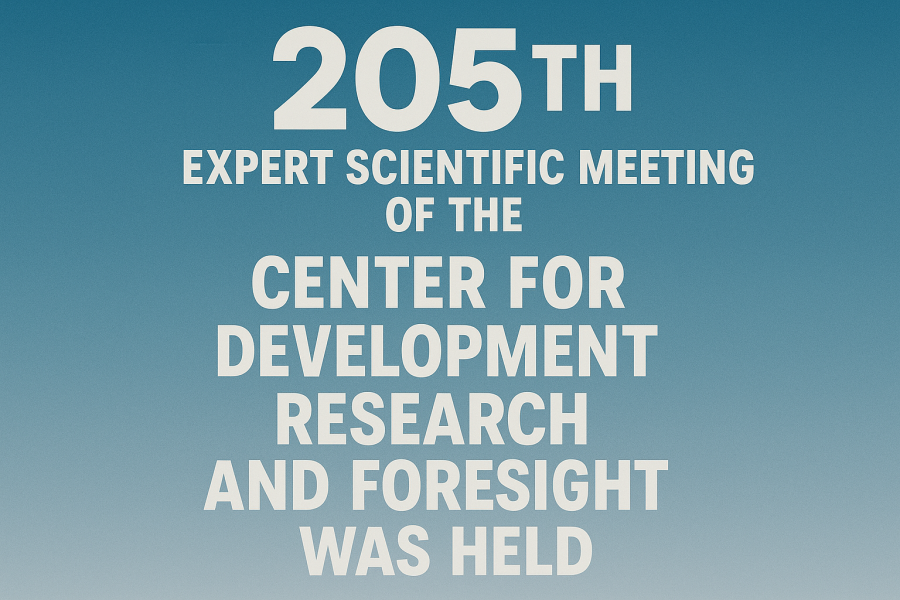
The 205th Expert Scientific Meeting of the Center for Development Research and Foresight (CDRF) was held
According to the Public Relations Office of the CDRF, the 205th Expert Scientific Meeting of the CDRF was held under the title 'Requirements and Challenges of Using the Public-Private Partnership Approach in Investment for Production'.
The 204th Expert Scientific Meeting of the Center for Development Research and Foresight (CDRF) was held.
According to the Public Relations Office of the CDRF, the 204th Expert Scientific Meeting of the CDRF was held on Tuesday, April 15, 2025, under the title 'The Government's Orientation in Fulfilling the 1404 Slogan (Investment for Production).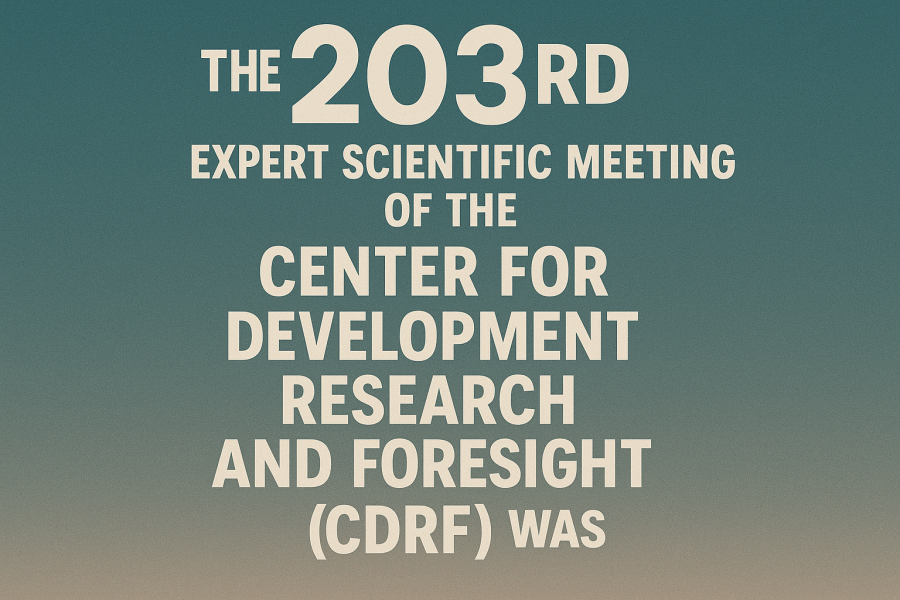
The 203rd Expert Scientific Meeting of the Center for Development Research and Foresight (CDRF) was held.
According to the Public Relations Office of the CDRF, the 203rd expert scientific meeting of the CDRF was held under the title “Analysis and Review of the Budget of State-Owned Enterprises in 1404 (2025-2026).” In this meeting, Mehdi Bagheri, former Head of State-Owned Enterprises, the Civil Servants Pension Fund (CSPF), and Public Institutions Affairs of the Plan and Budget Organization of the Islamic Republic of Iran (PBO), served as the scientific chair of the meeting. Additionally, Hassan Khoshpour, former Head of State-Owned Enterprises Affairs of the PBO, and Mohammad Nasir Arab Nosratabadi, Head of the State-Owned Enterprises and Non-Governmental Public Institutions Group of the PBO, participated as the keynote speakers, presenting their viewpoints.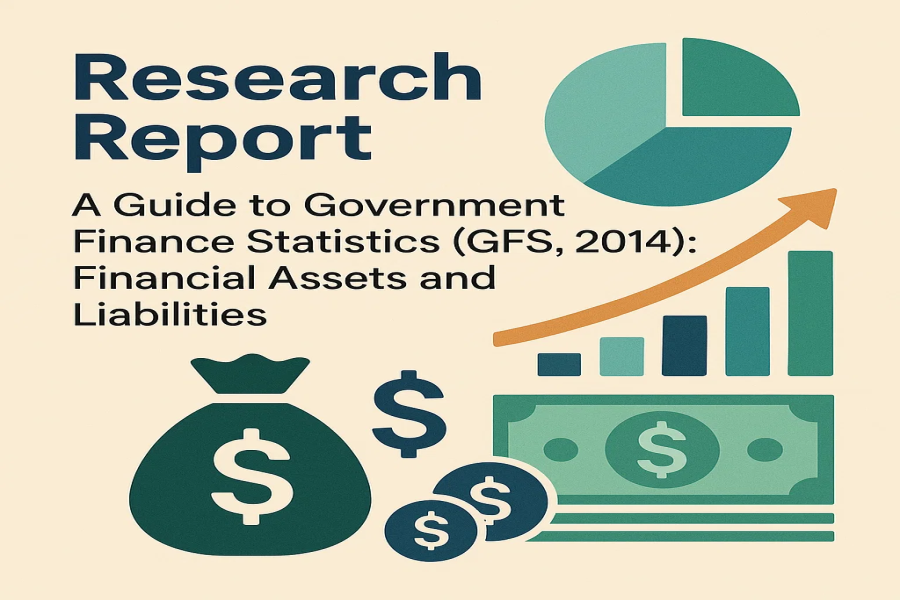
Research Report for a Guide to Government Finance Statistics (GFS, 2014): Financial Assets and Liabilities
According to the Public Relations Office of the Center, the research report titled A Guide to Government Finance Statistics (GFS, 2014): Financial Assets and Liabilities has been published by the Research Group on Modern Systems of Planning, Budgeting, and Modeling at the Center for Development Studies and Foresight. The introduction of the report states: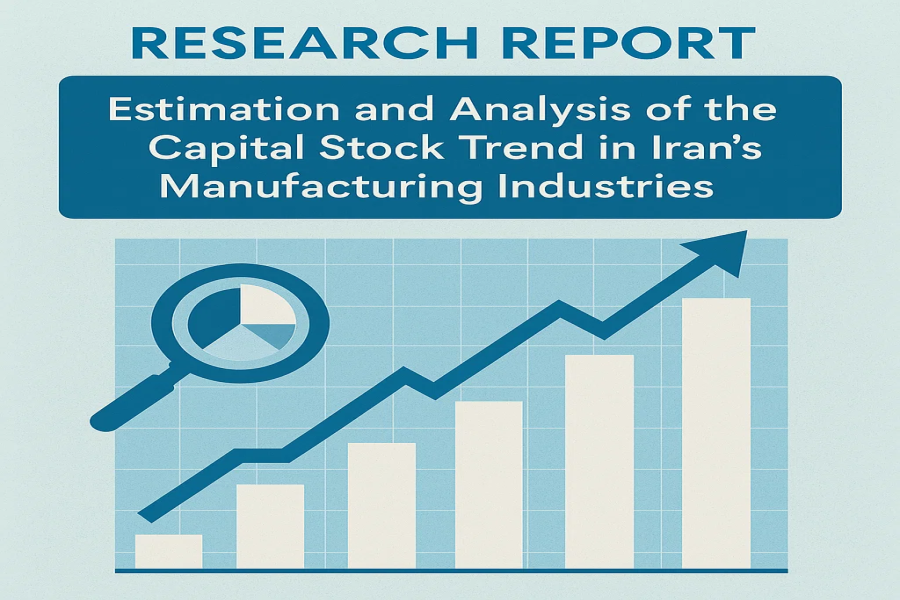
Research report on Estimation and Analysis of the Capital Stock Trend in Iran’s Manufacturing Industries
According to the Public Relations Office of the Center, the Research Group on Modern Systems of Planning, Budgeting, and Modeling at the Center for Development Studies and Foresight has published the research report titled: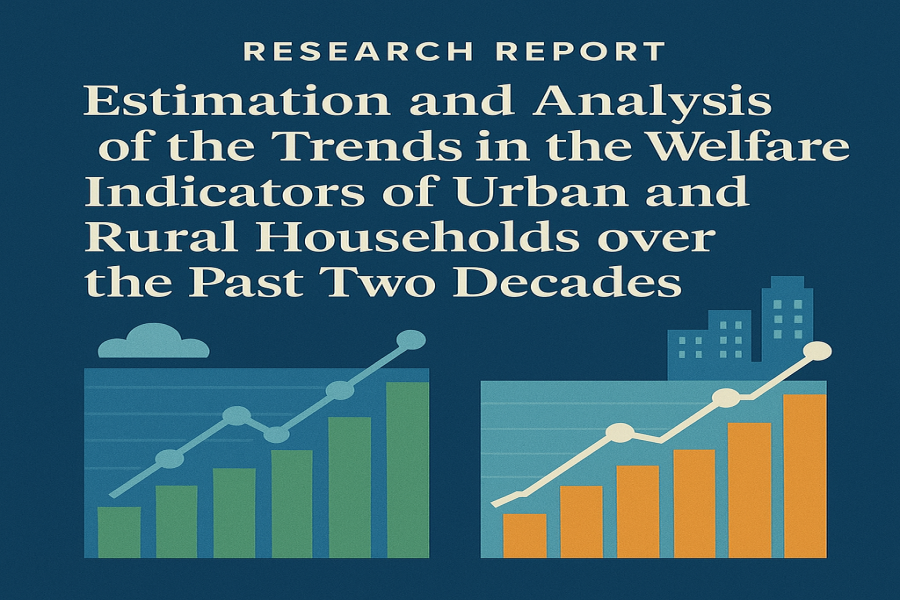
Research report on the Estimation and Analysis of the Trends in the Welfare Indicators of Urban and Rural Households over the Past Two Decades
According to the Public Relations Office of the Center, the Research Group on Modern Systems of Planning, Budgeting, and Modeling has published its latest research report titled: Estimation and Analysis of the Trends in the Welfare Indicators of Urban and Rural Households over the Past Two Decades. The executive summary of the report notes: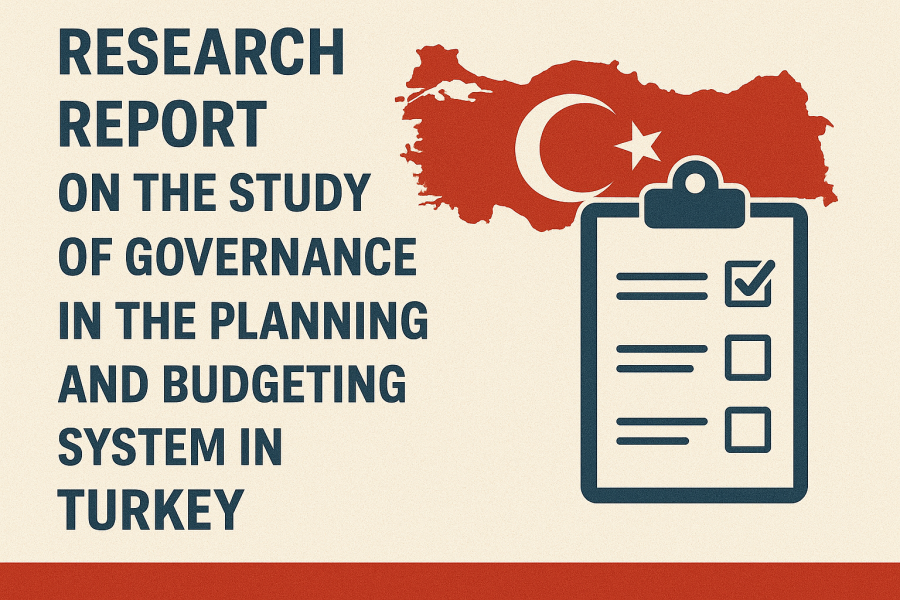
Research report on the Study of Governance in the Planning and Budgeting System in Turkey
According to the Public Relations of the Center for Development and Foresight Research, the Research Group on Modern Systems of Planning, Budgeting, and Modeling published a research report titled "Study of Governance in the Planning and Budgeting System in Turkey" in November 2024.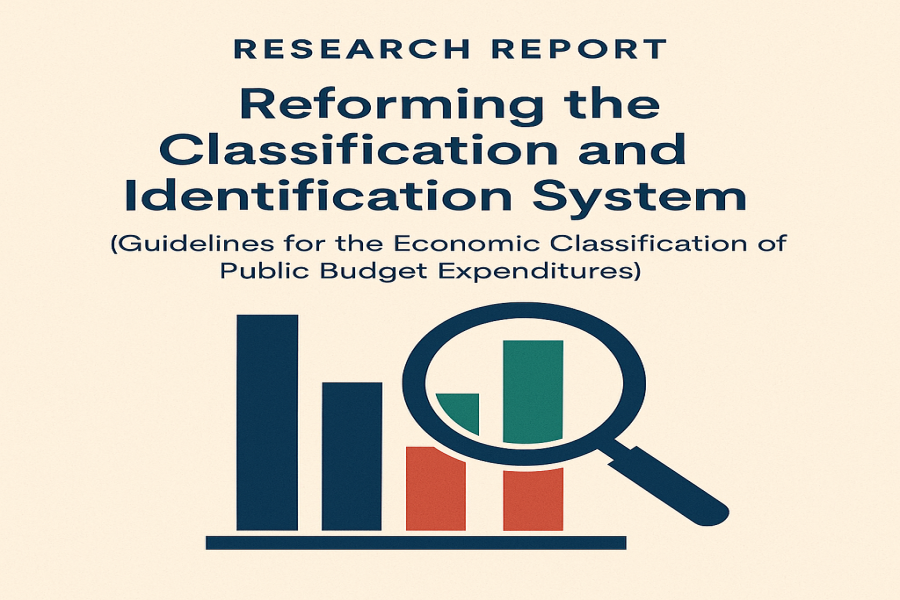
Research report on Reforming the Classification and Identification System (Guidelines for the Economic Classification of Public Budget Expenditures)
The Public Relations Office of the Center for Development and Foresight Research announced that the Research Group on Modern Planning, Budgeting, and Modeling at the center has released a new research report titled "Reforming the Classification and Identification System (Guidelines for the Economic Classification of Public Budget Expenditures)."
The 201st Expert Scientific Meeting of the Center for Development Research and Foresight (CDRF) was held.
According to the Public Relations Office of the CDRF, the eleventh session of the series entitled “The Future Outlook of Iran” and the 201st meeting of the CDRF was held under the title “A Critical Assessment of the Vision of the Islamic Republic of Iran in the Horizon of 1404 AH.”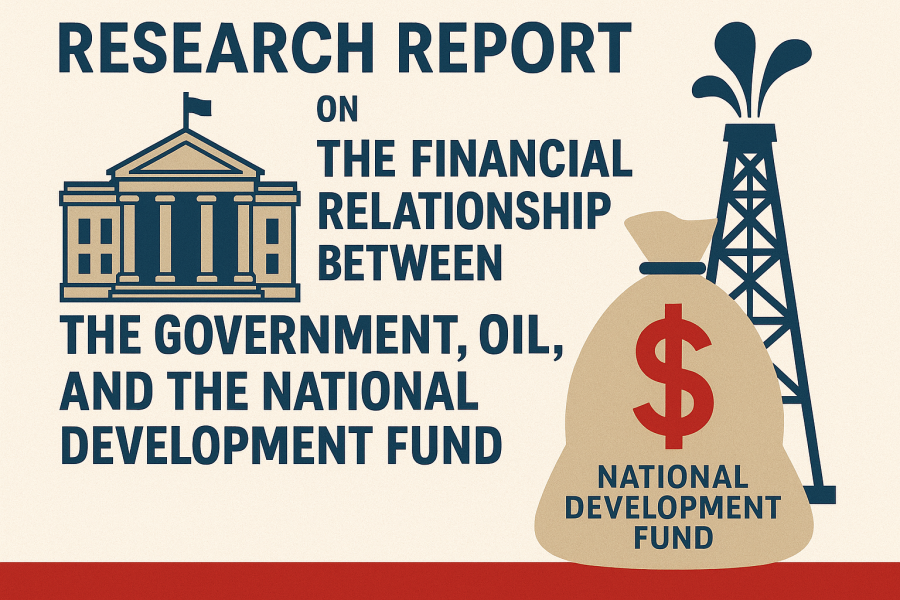
Research report on The Financial Relationship between the Government, Oil, and the National Development Fund
According to the Public Relations Office of the Center for Development and Foresight Research, the Research Group on Modern Systems of Planning, Budgeting, and Modeling has published a research report titled "The Financial Relationship between the Government, Oil, and the National Development Fund." This report is the outcome of expert discussions held within the specialized working group on Macroeconomics and Sustainable Development, as part of the series of events for the First National Conference on Improving the Budgeting Process in Iran.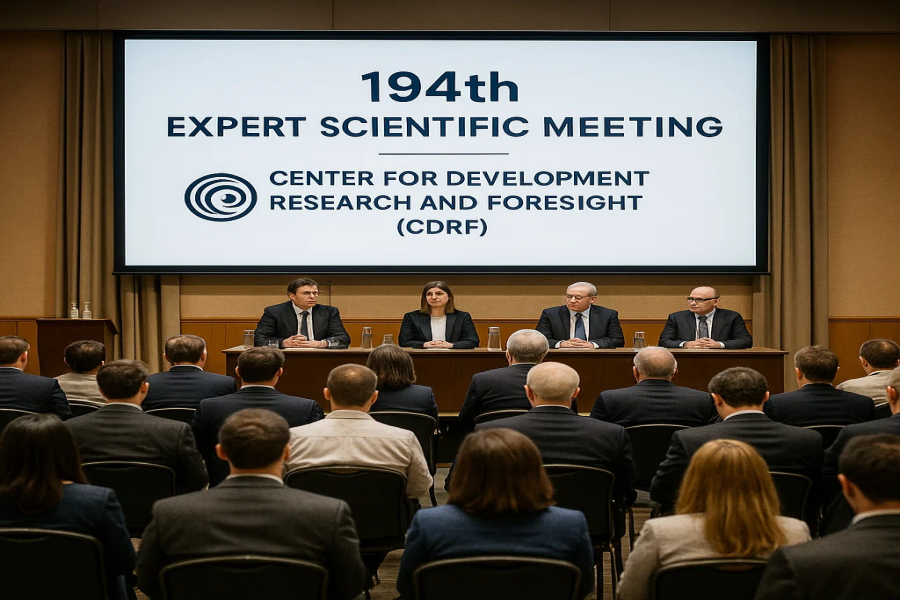
The 194th Expert Scientific Meeting of the Center for Development Research and Foresight (CDRF) was held.
According to the Public Relations Office of the CDRF, the fifth session of the “Future Vision of the Islamic Republic of Iran” series and the 194th expert scientific meeting of the CDRF was held under the title “The Vision of Demographic Changes and Urban Society.”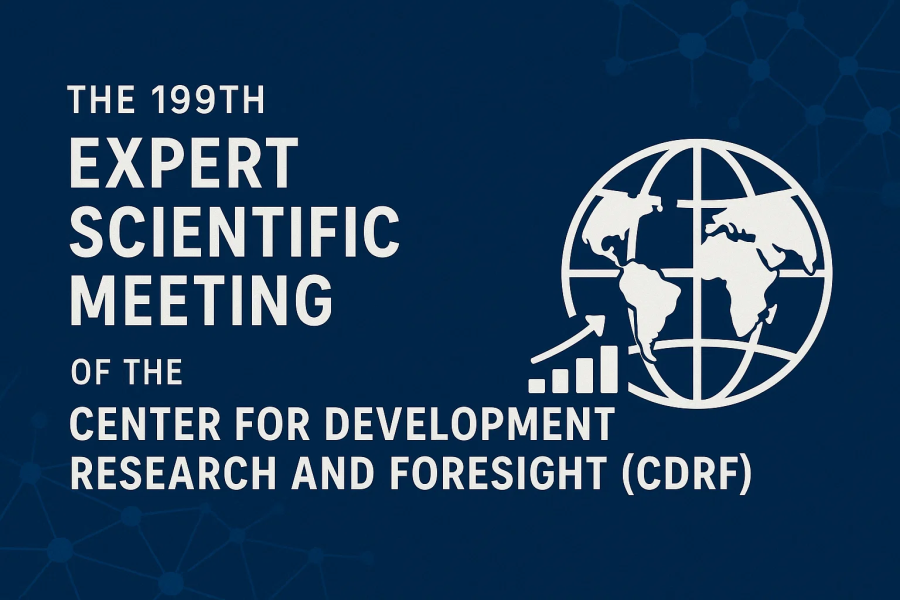
The 199th Expert Scientific Meeting of the Center for Development Research and Foresight (CDRF) was held.
According to the Public Relations Office of the CDRF, the ninth session of the series entitled “The Future Outlook of Iran” and the 199th expert scientific meeting of the CDRF was held under the title “Agriculture in the Vision of the Islamic Republic of Iran.”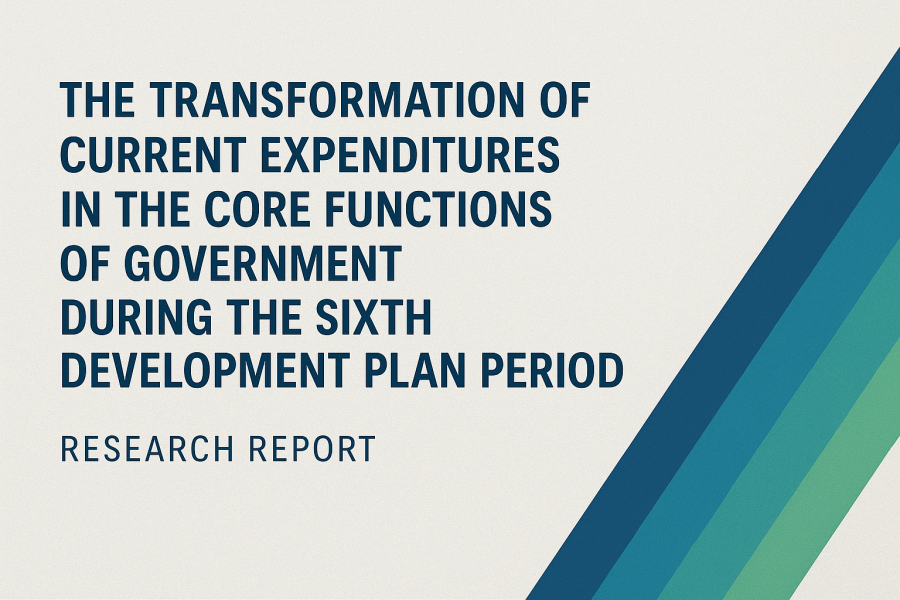
The research report titled “The Transformation of Current Expenditures in the Core Functions of Government during the Sixth Development Plan Period” was published.
According to the Public Relations Office of the Center for Development Research and Foresight (CDRF), the Research Group on Modern Planning, Budgeting, and Modeling Systems has published its latest research report entitled “The Transformation of Current Expenditures in the Core Functions of Government during the Sixth Development Plan Period.” The executive summary of this research report states: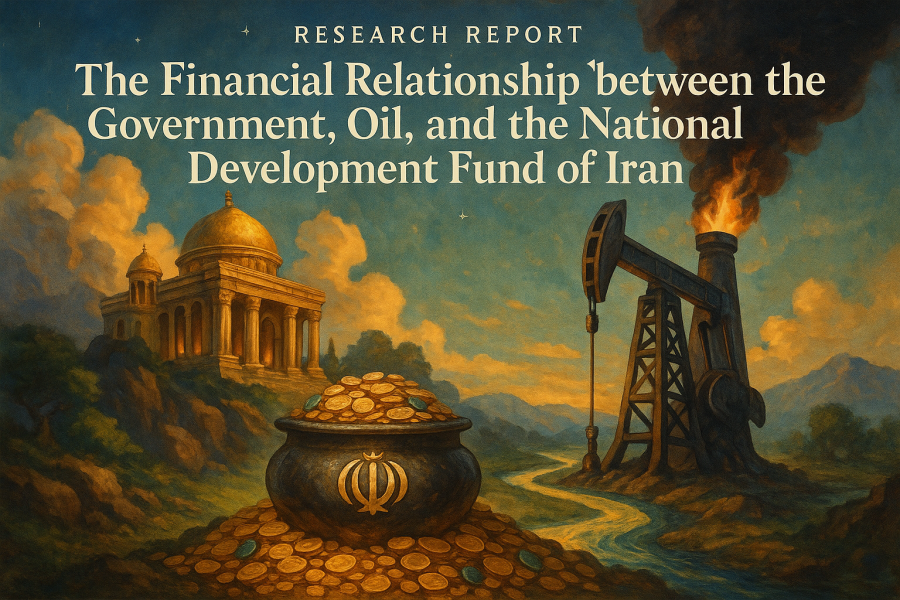
The research report titled “The Financial Relationship between the Government, Oil, and the National Development Fund of Iran” was published.
According to the Public Relations Office of the Center for Development Research and Foresight (CDRF), the Research Group on Modern Planning, Budgeting, and Modeling Systems has published a research report entitled “The Financial Relationship between the Government, Oil, and the National Development Fund of Iran.” This report is the outcome of expert discussions held within the Expert Working Group on Macroeconomics and Sustainable Development, conducted as part of the series of events of the First National Conference on Improving the Budgeting Process in Iran. The executive summary of this research report states: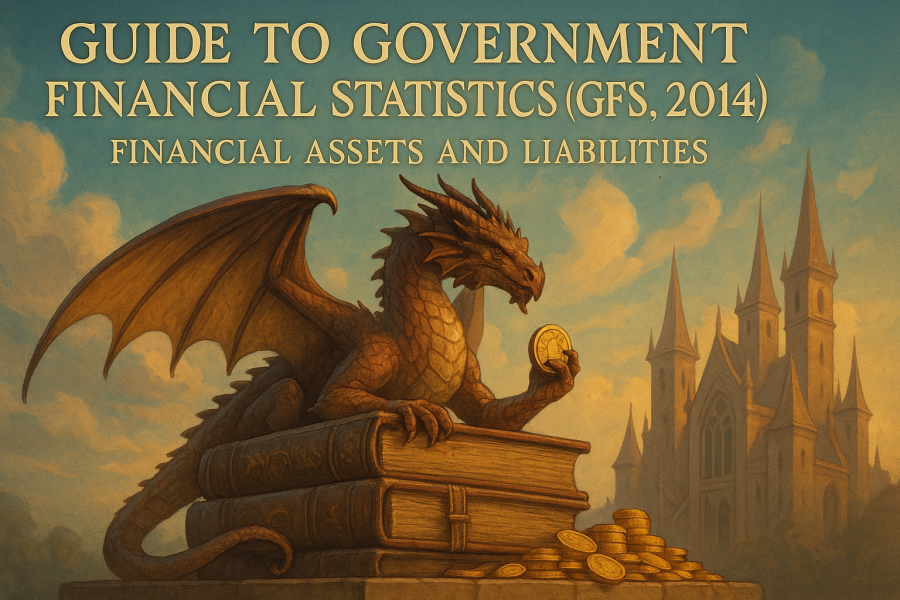
The research report titled “Guide to Government Financial Statistics (GFS, 2014): Financial Assets and Liabilities” was published.
According to the Public Relations Office of the Center for Development Research and Foresight (CDRF), the research report entitled “Guide to Government Financial Statistics (GFS, 2014): Financial Assets and Liabilities” has been published by the Research Group on Modern Planning, Budgeting, and Modeling Systems of the CDRF. A part of the introduction to this research report states: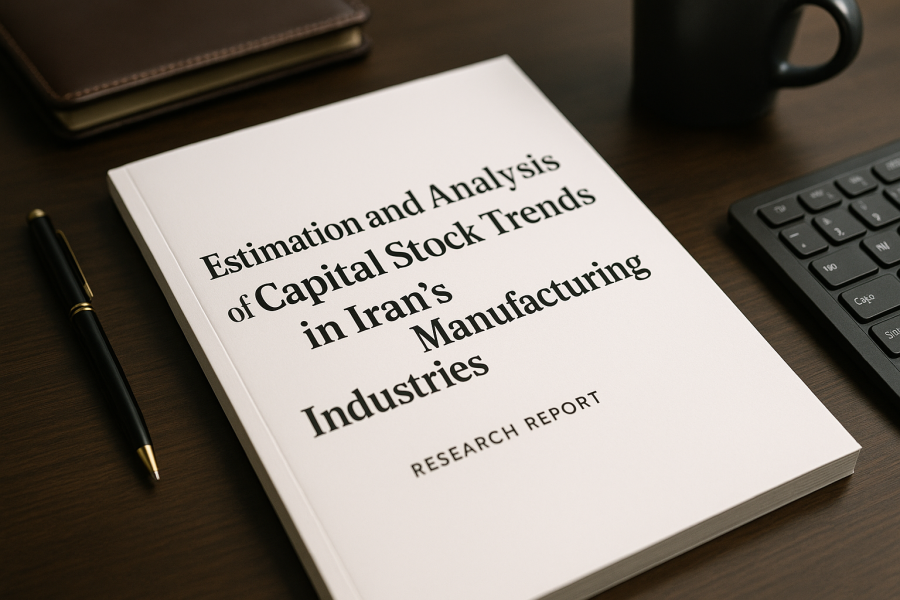
The research report titled “Estimation and Analysis of Capital Stock Trends in Iran’s Manufacturing Industries” was published.
According to the Public Relations Office of the Center for Development Research and Foresight (CDRF), the Research Group on Modern Planning, Budgeting, and Modeling Systems of the CDRF has published a research report entitled “Estimation and Analysis of Capital Stock Trends in Iran’s Manufacturing Industries.” A part of the introduction to this research report states: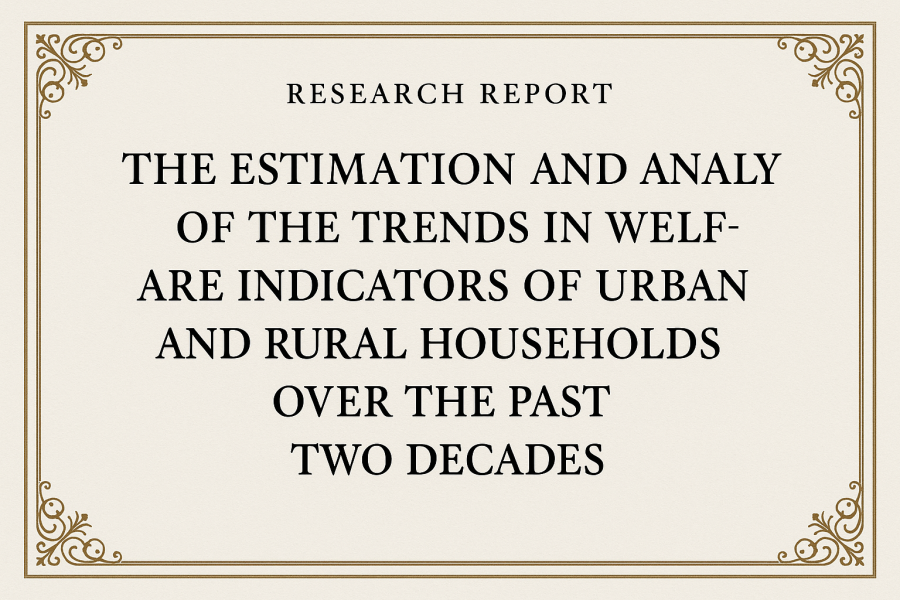
The research report titled “The Estimation and Analysis of the Trends in Welfare Indicators of Urban and Rural Households Over the Past Two Decades” was published.
According to the Public Relations Office of the Center for Development Research and Foresight (CGRF), the Research Group on Modern Planning, Budgeting, and Modeling Systems has published its latest research report entitled “The Estimation and Analysis of the Trends in Welfare Indicators of Urban and Rural Households Over the Past Two Decades.” A part of the executive summary of this research report states:
امروز : سه شنبه، ۲۸ بهمن ۱۴۰۴

